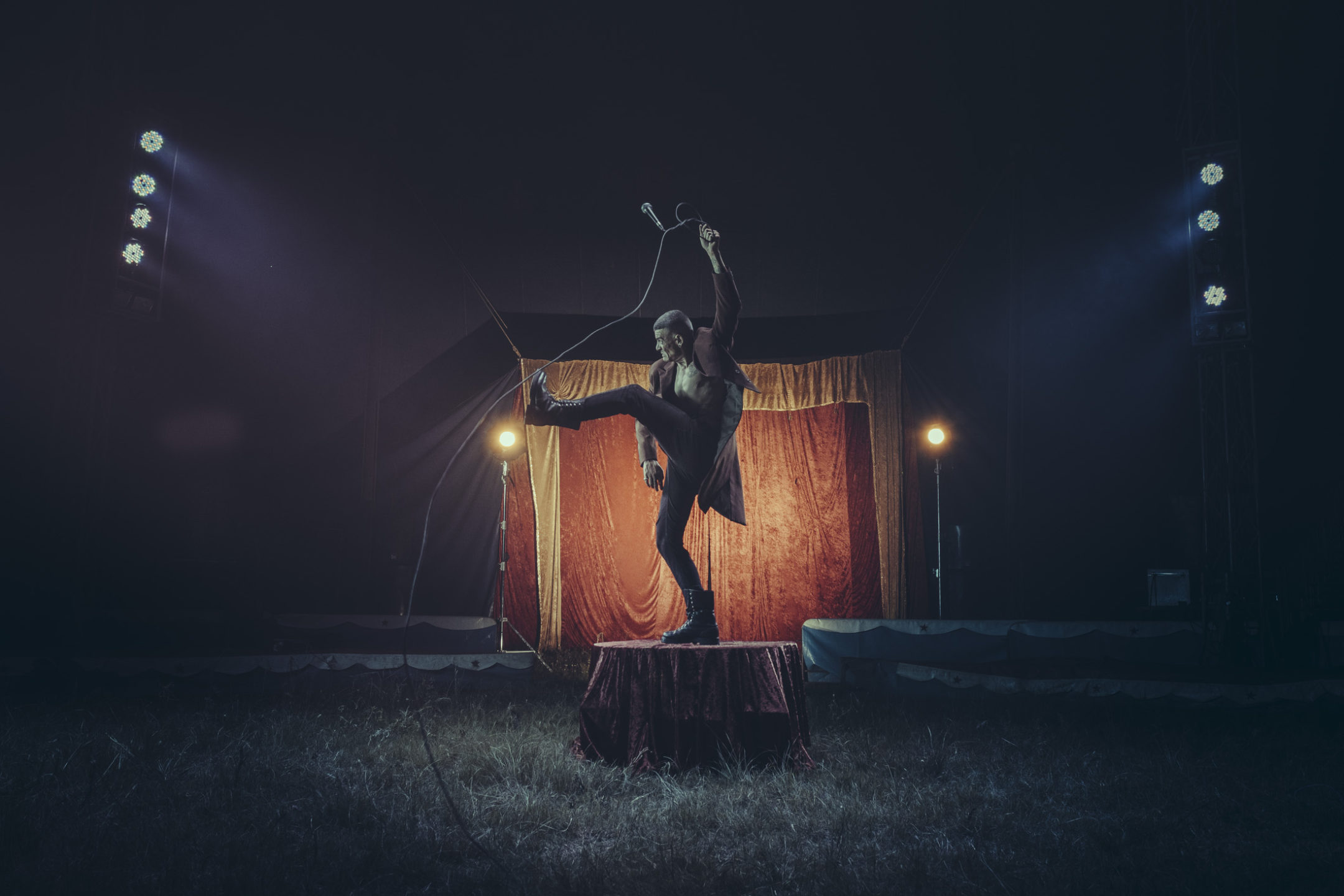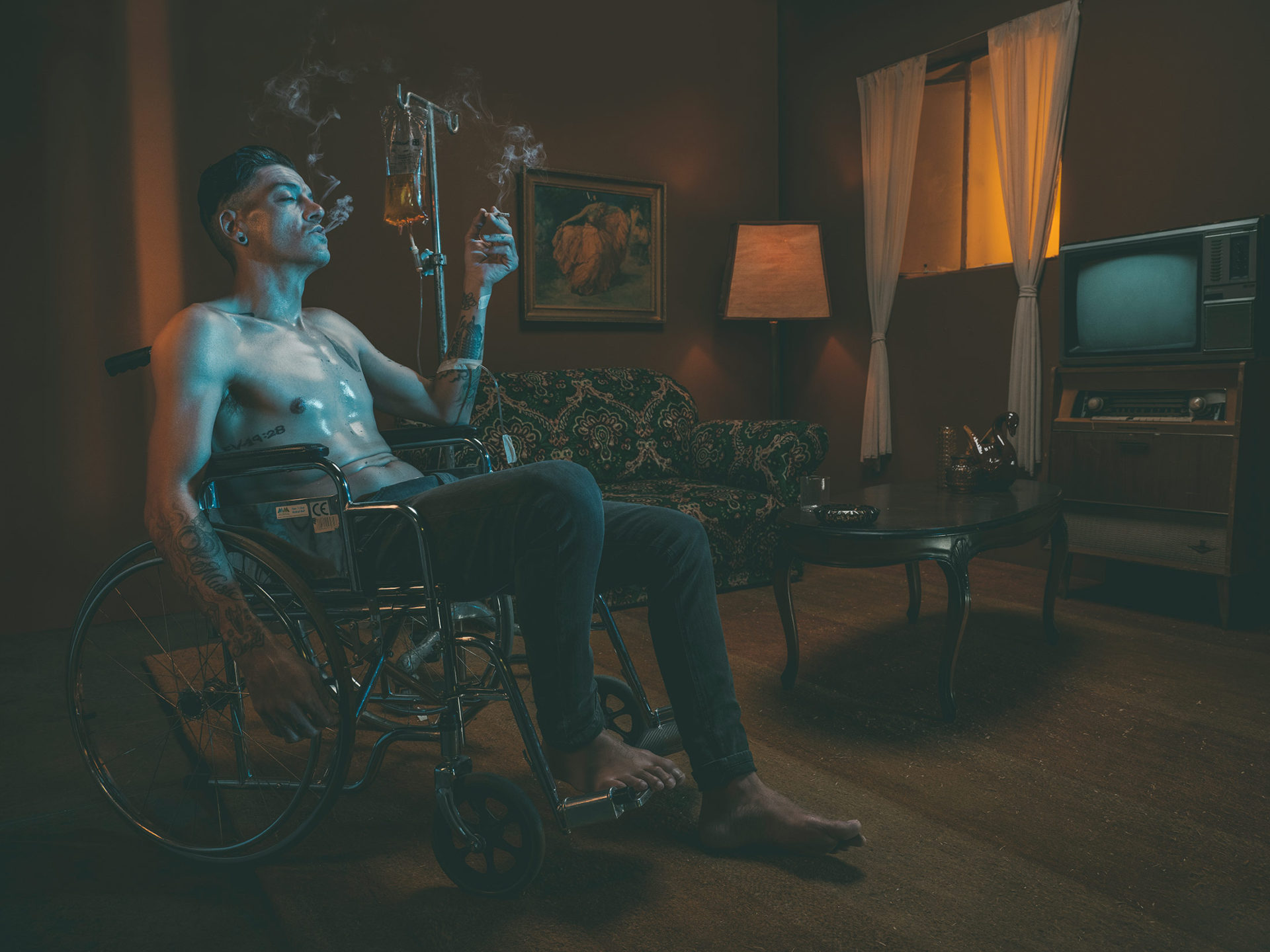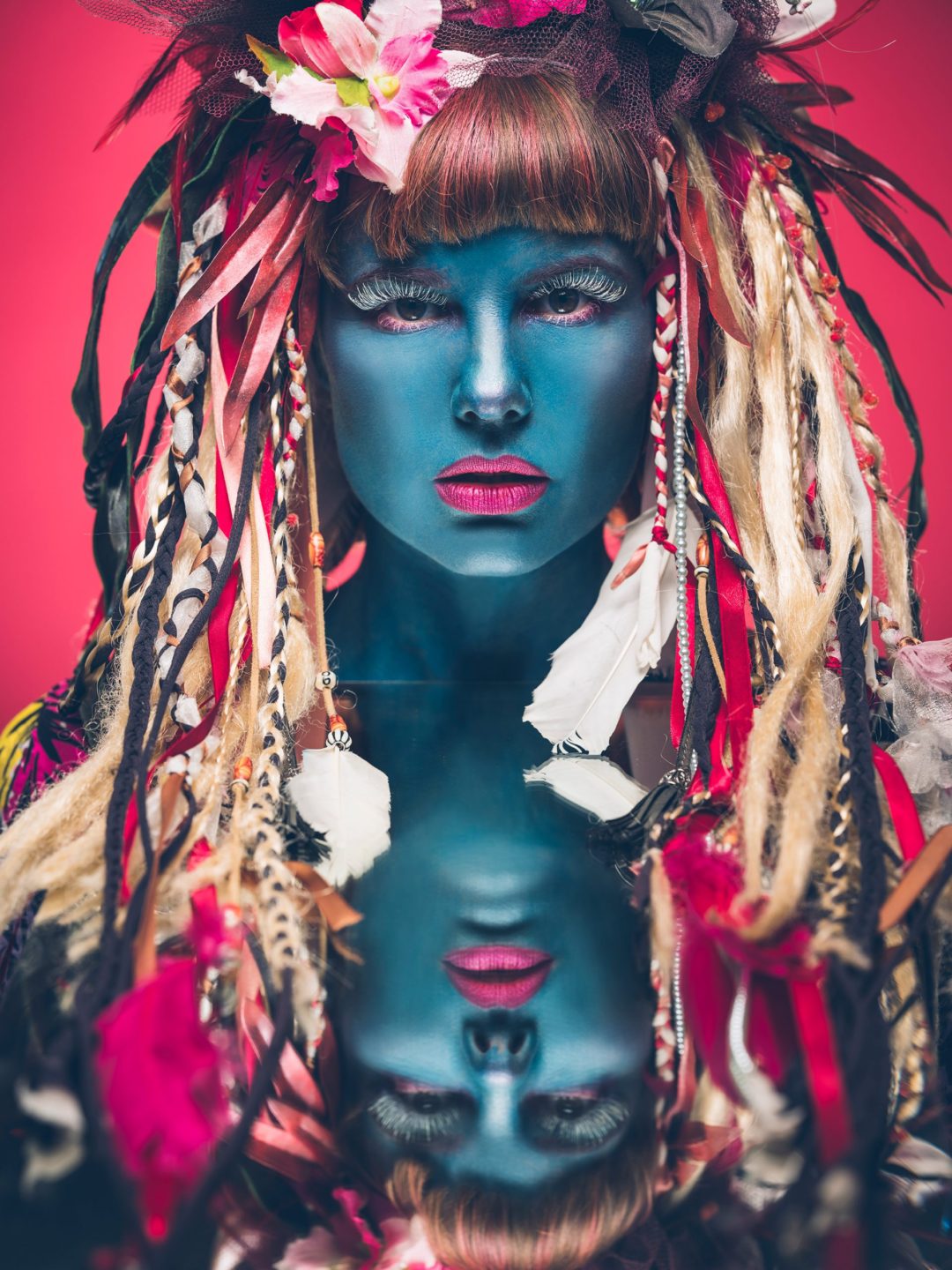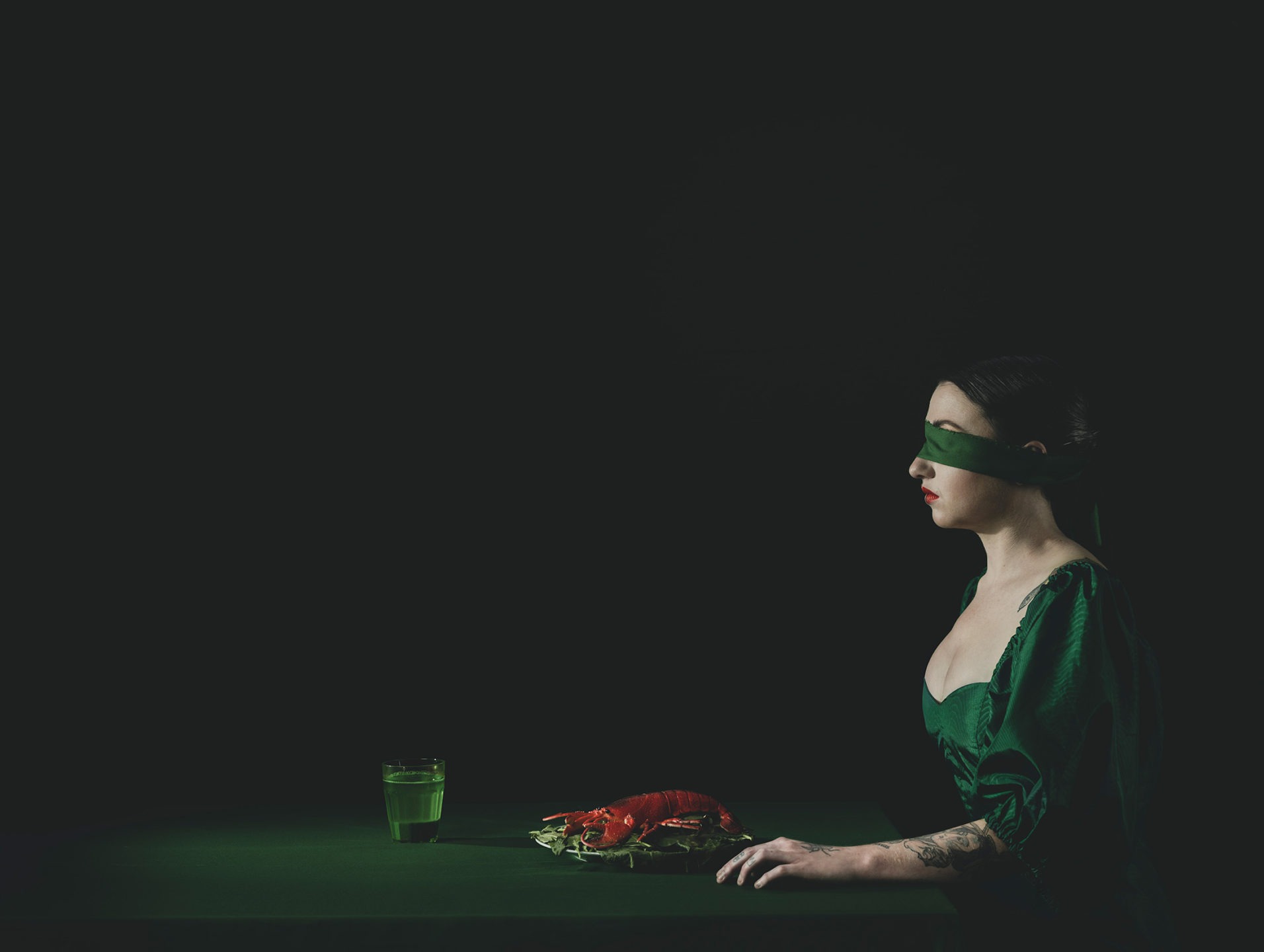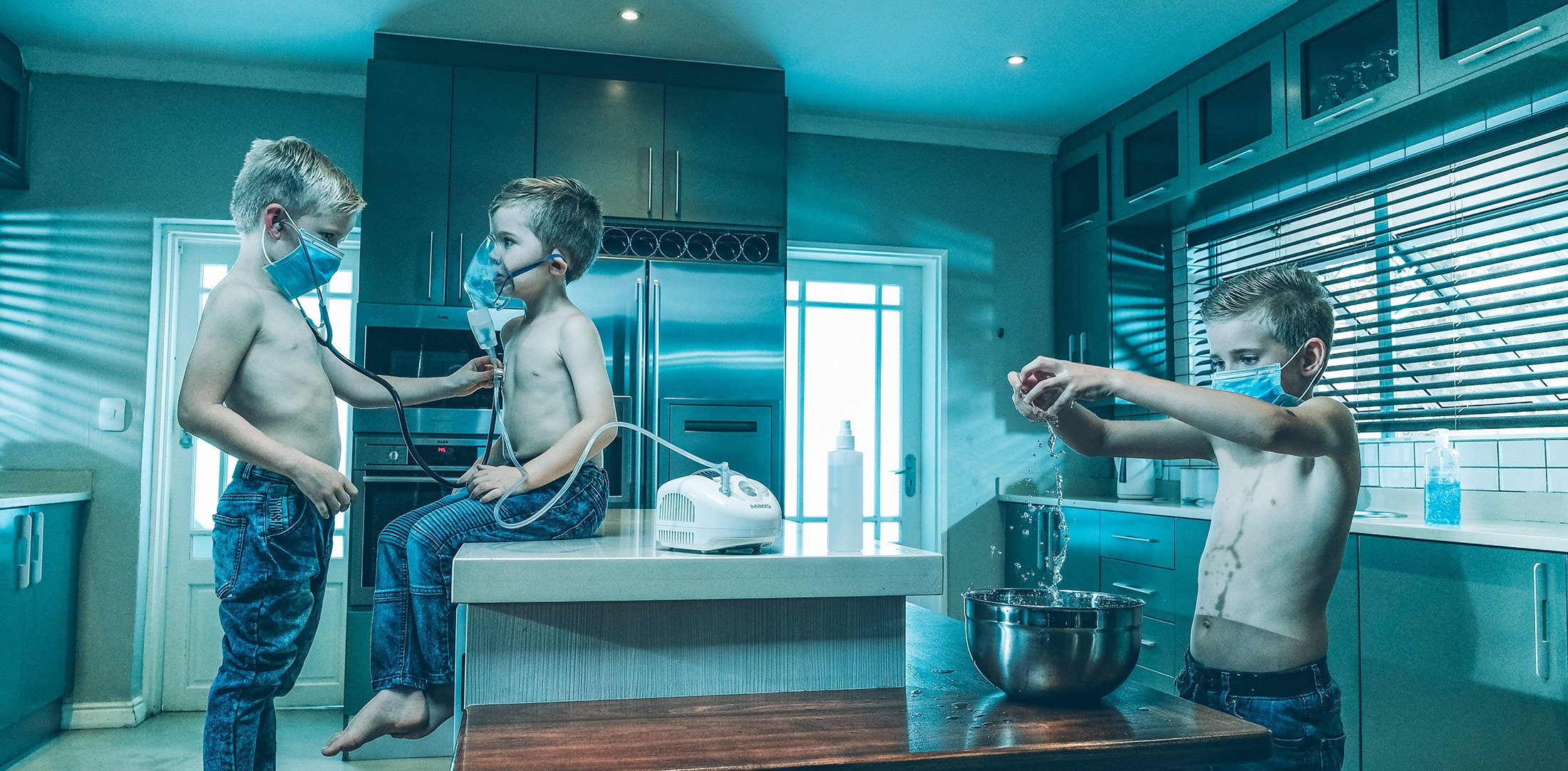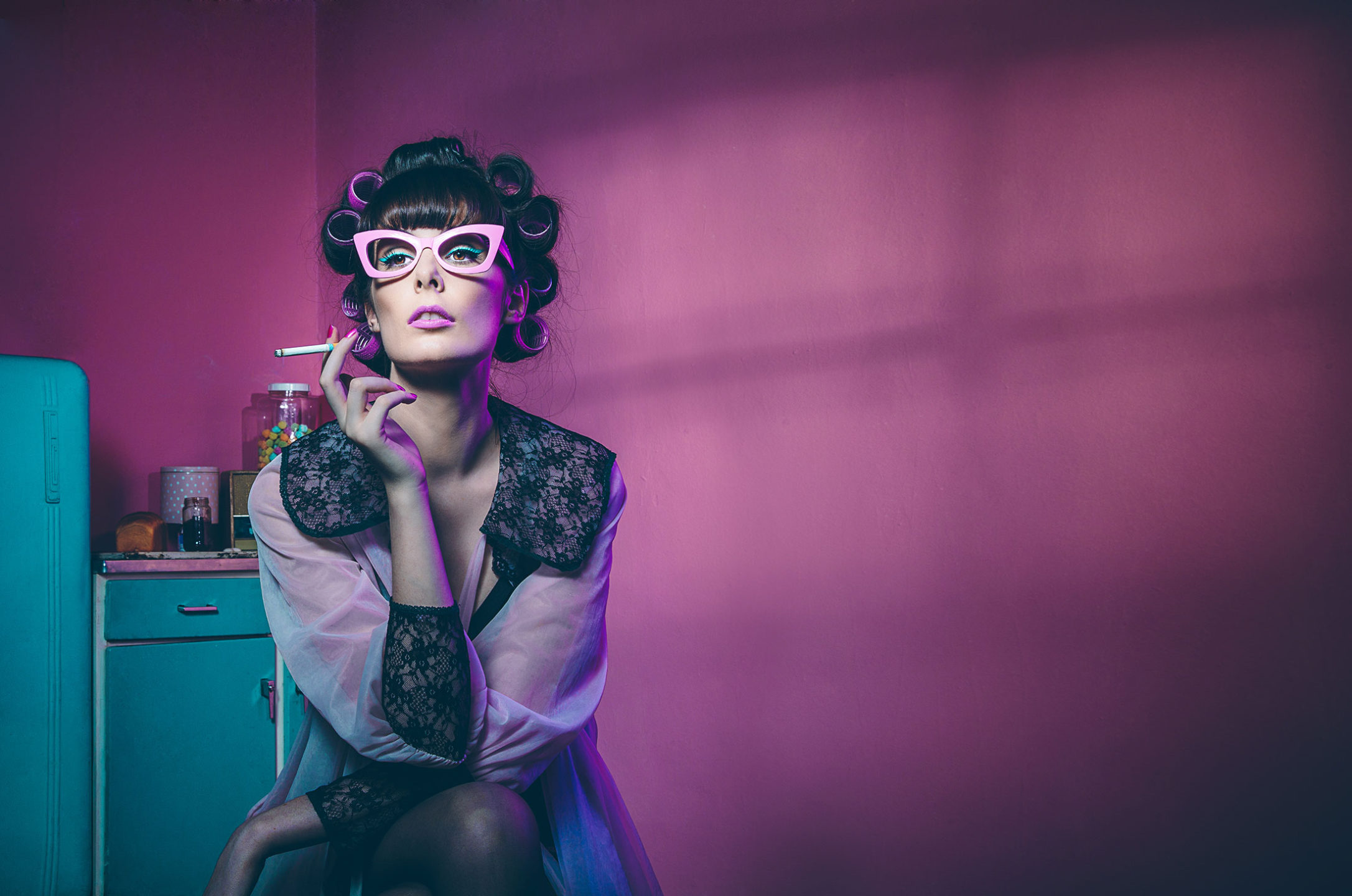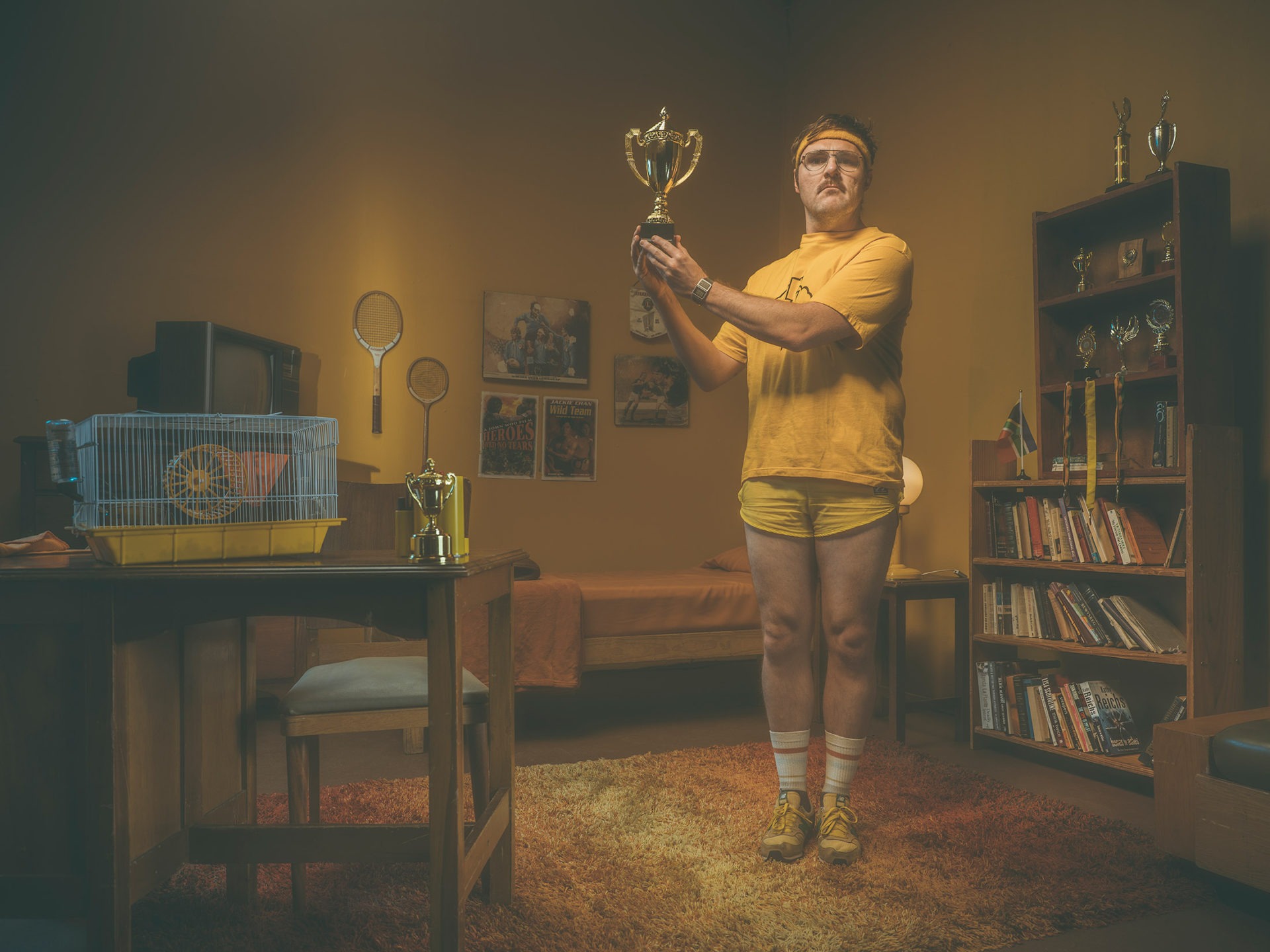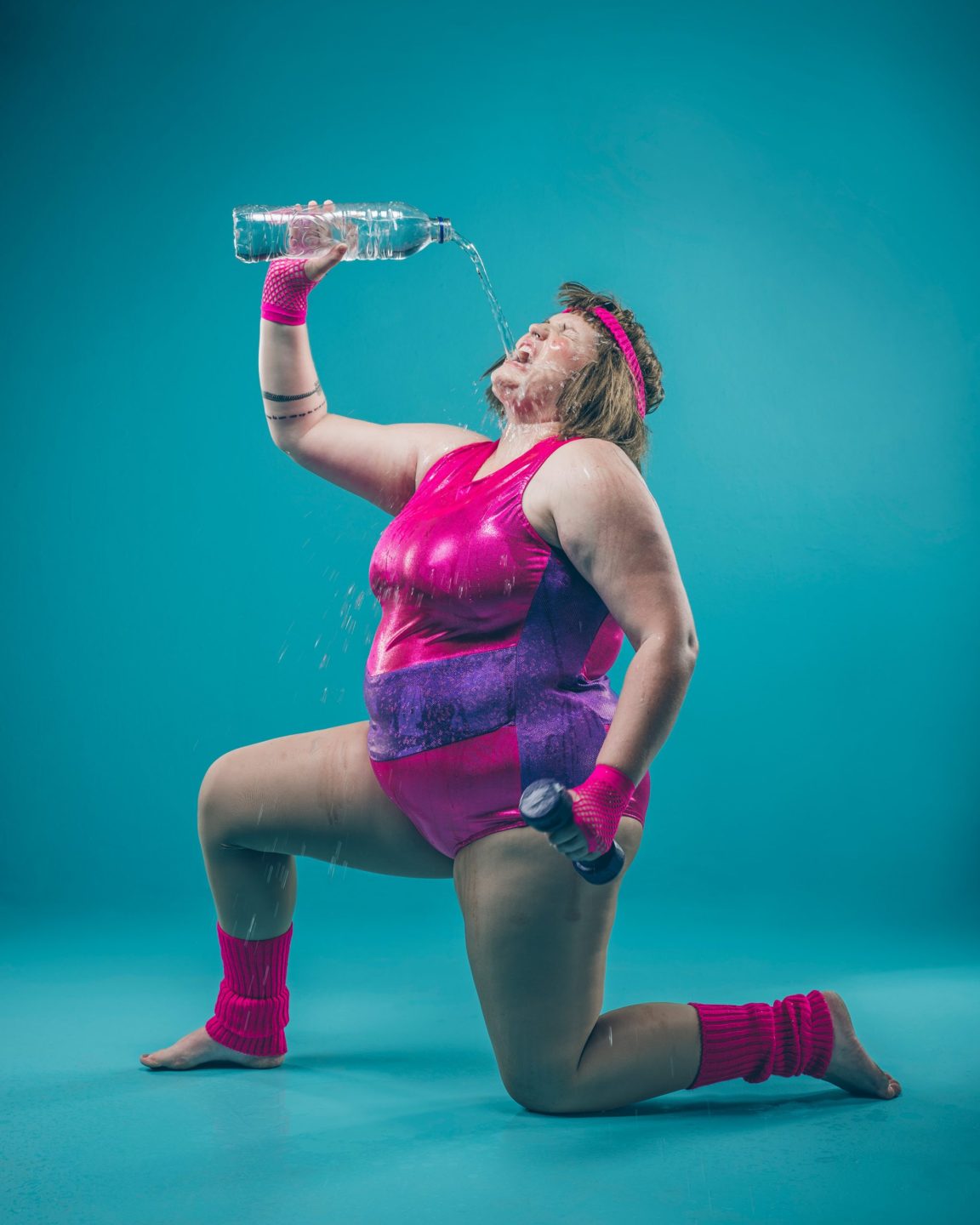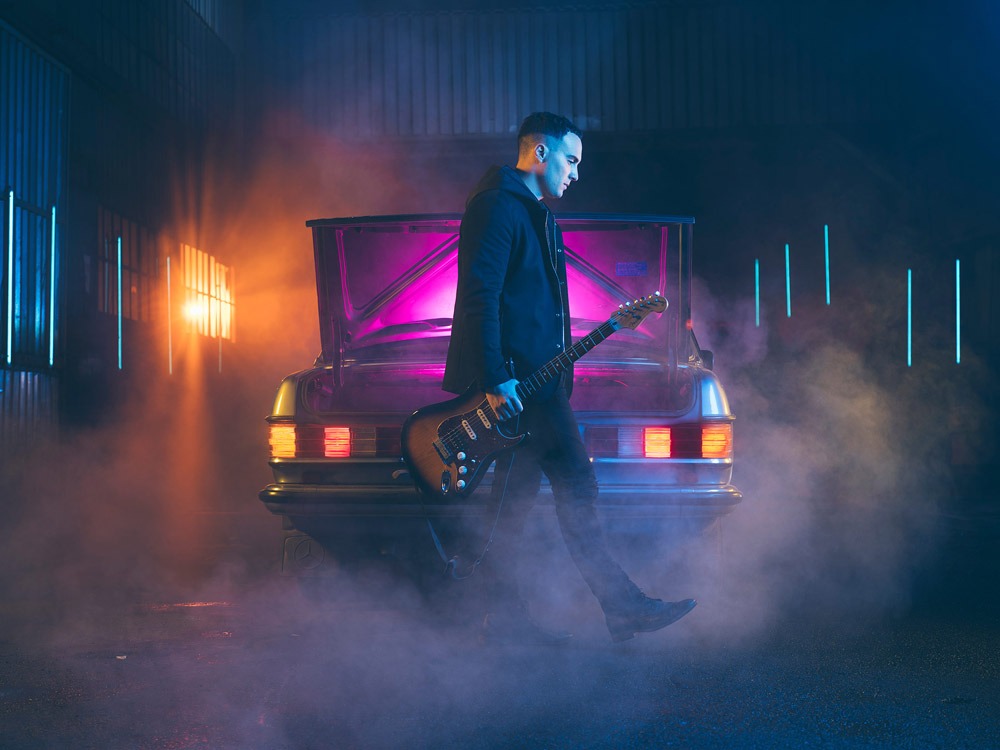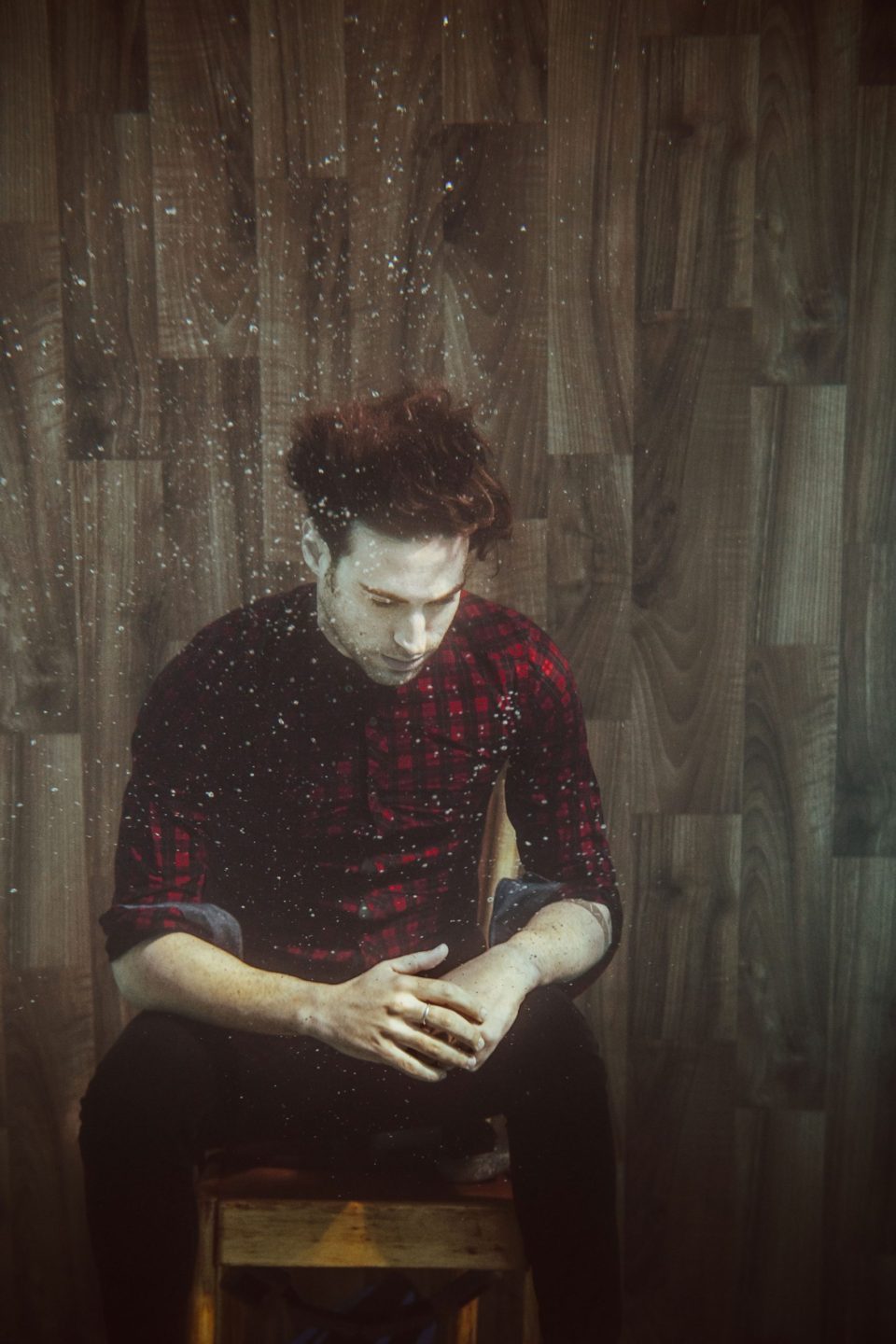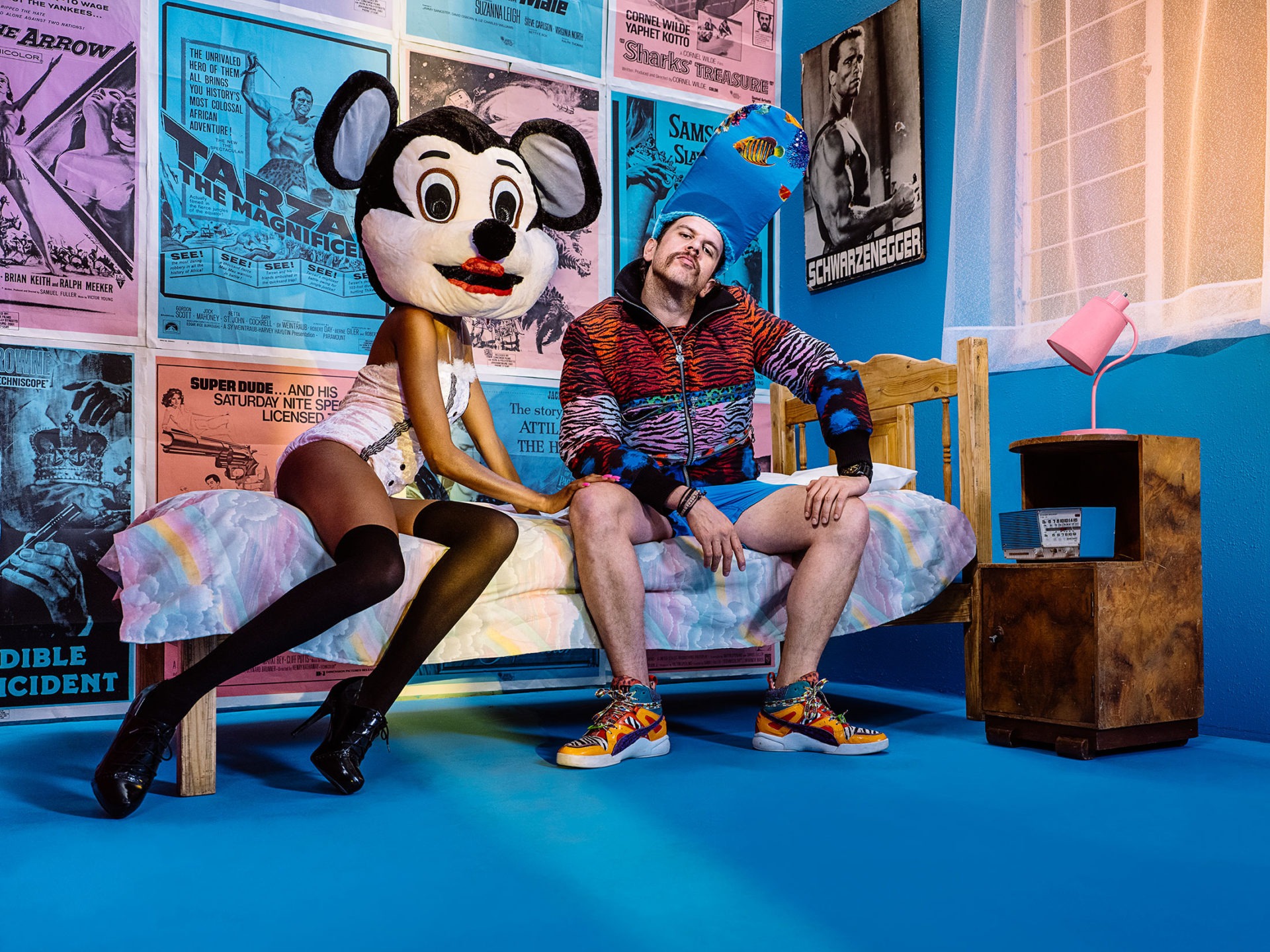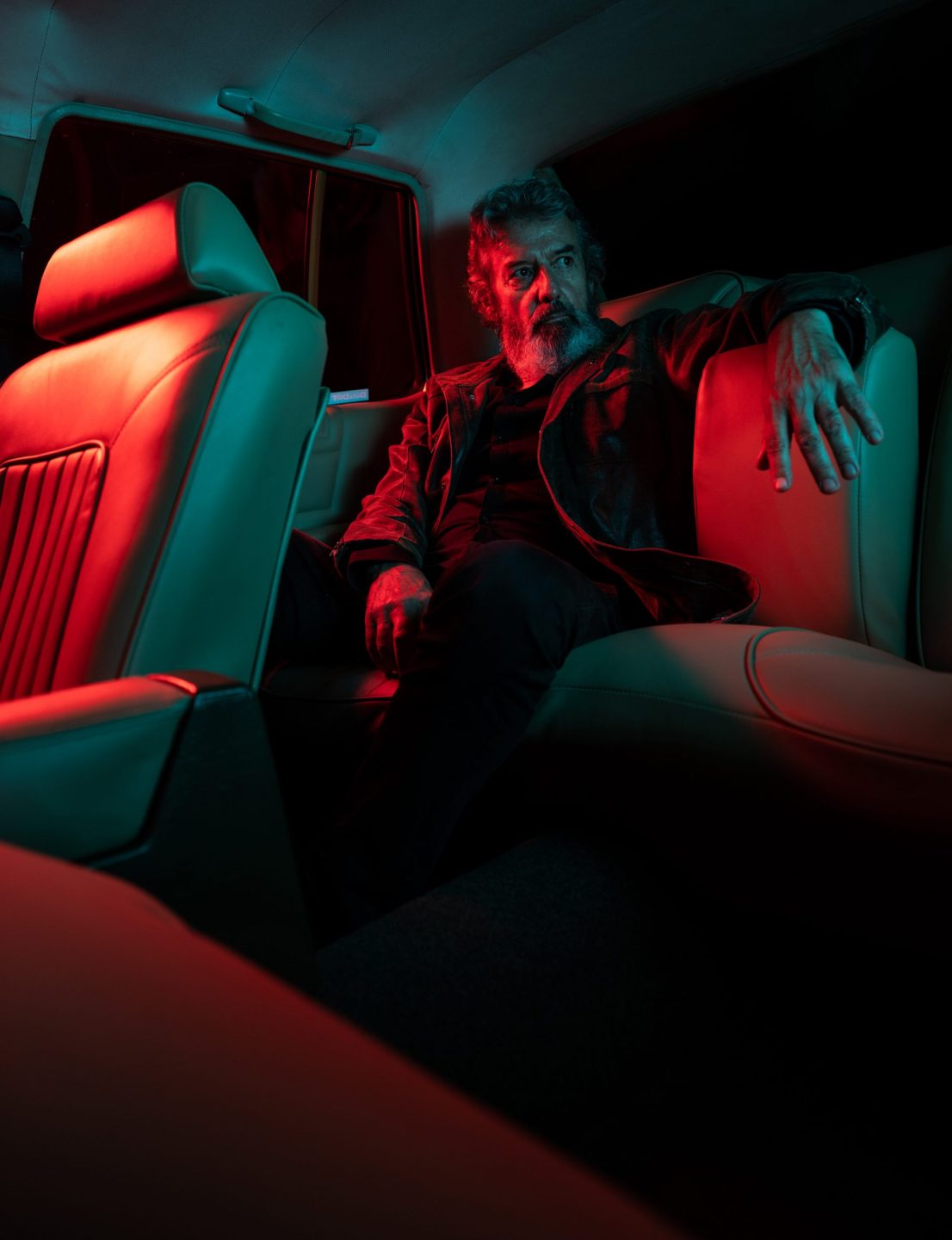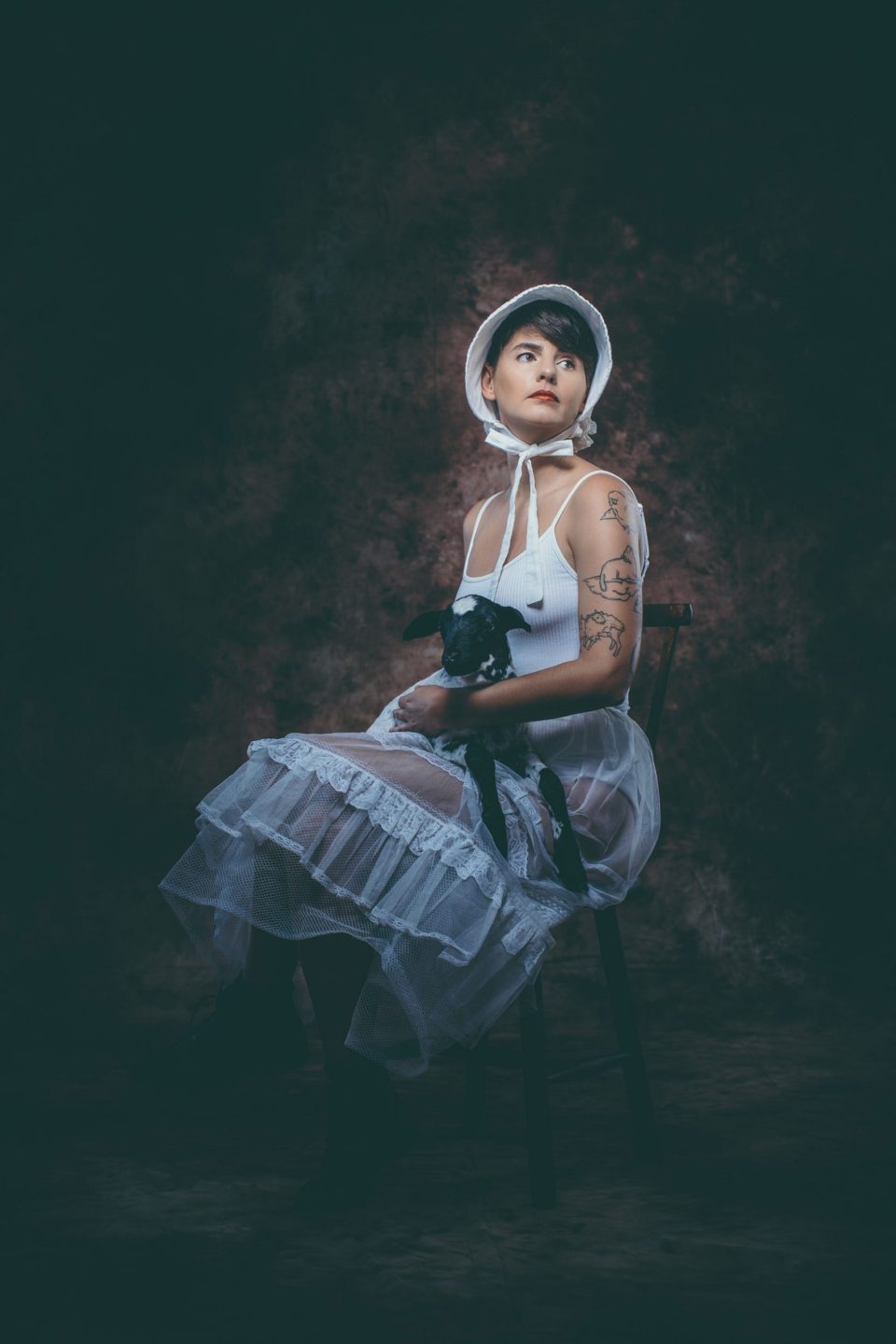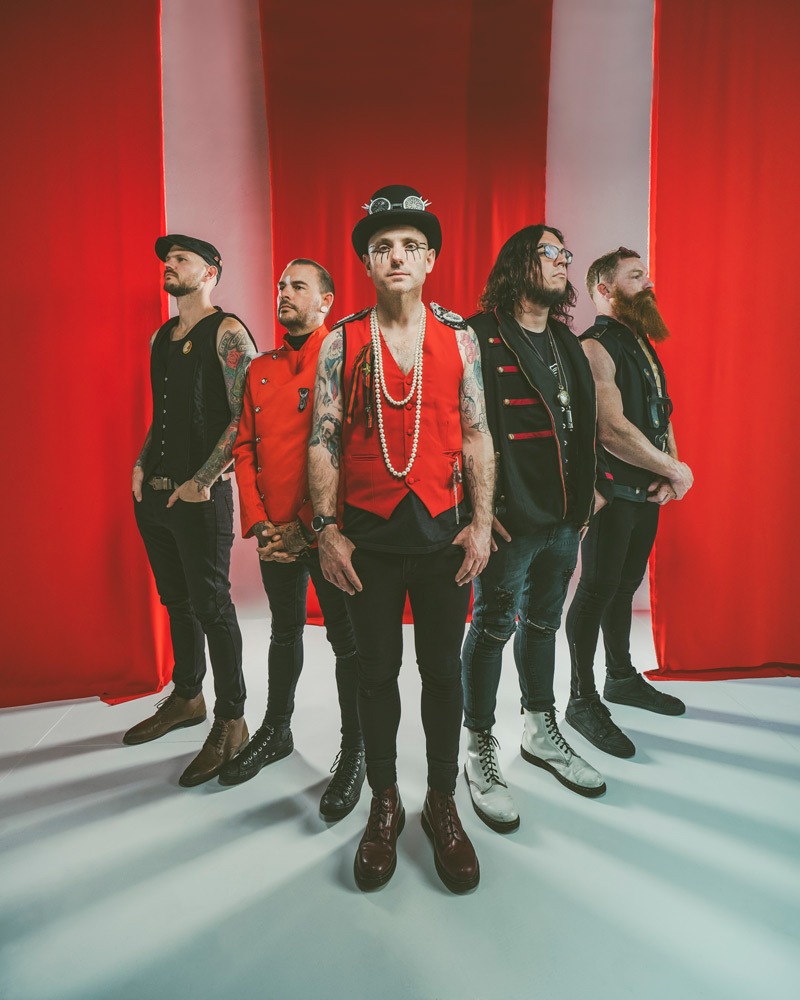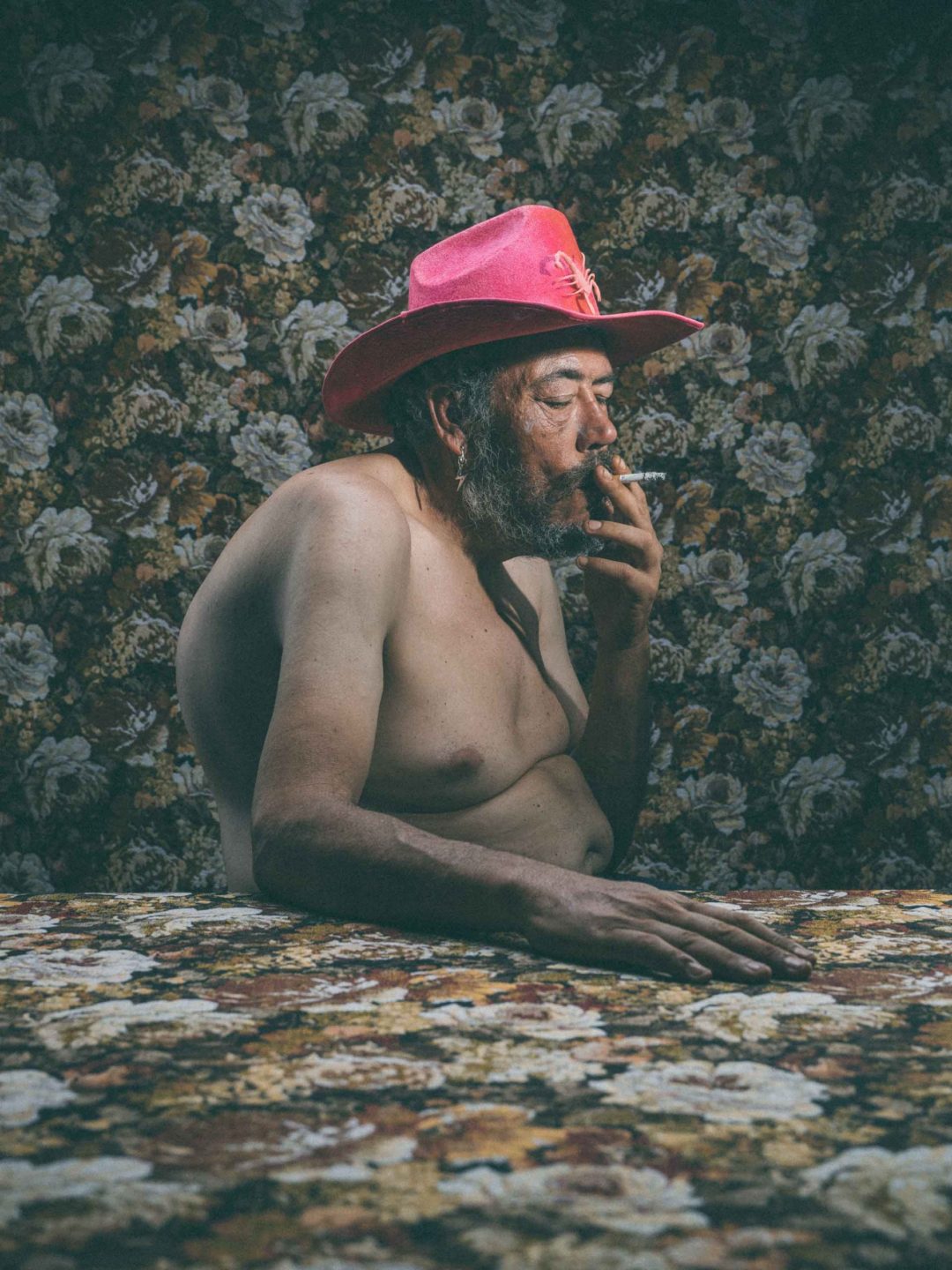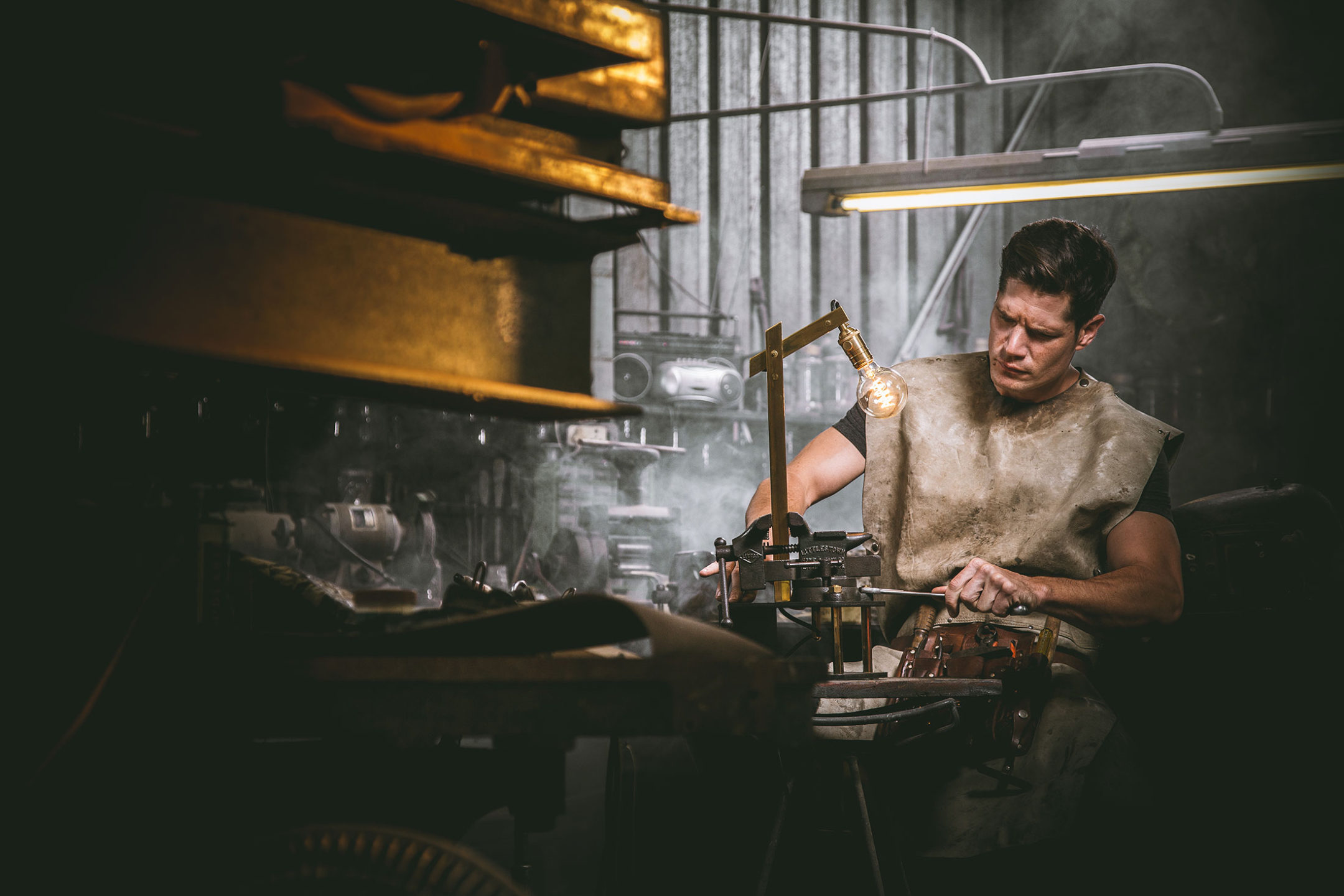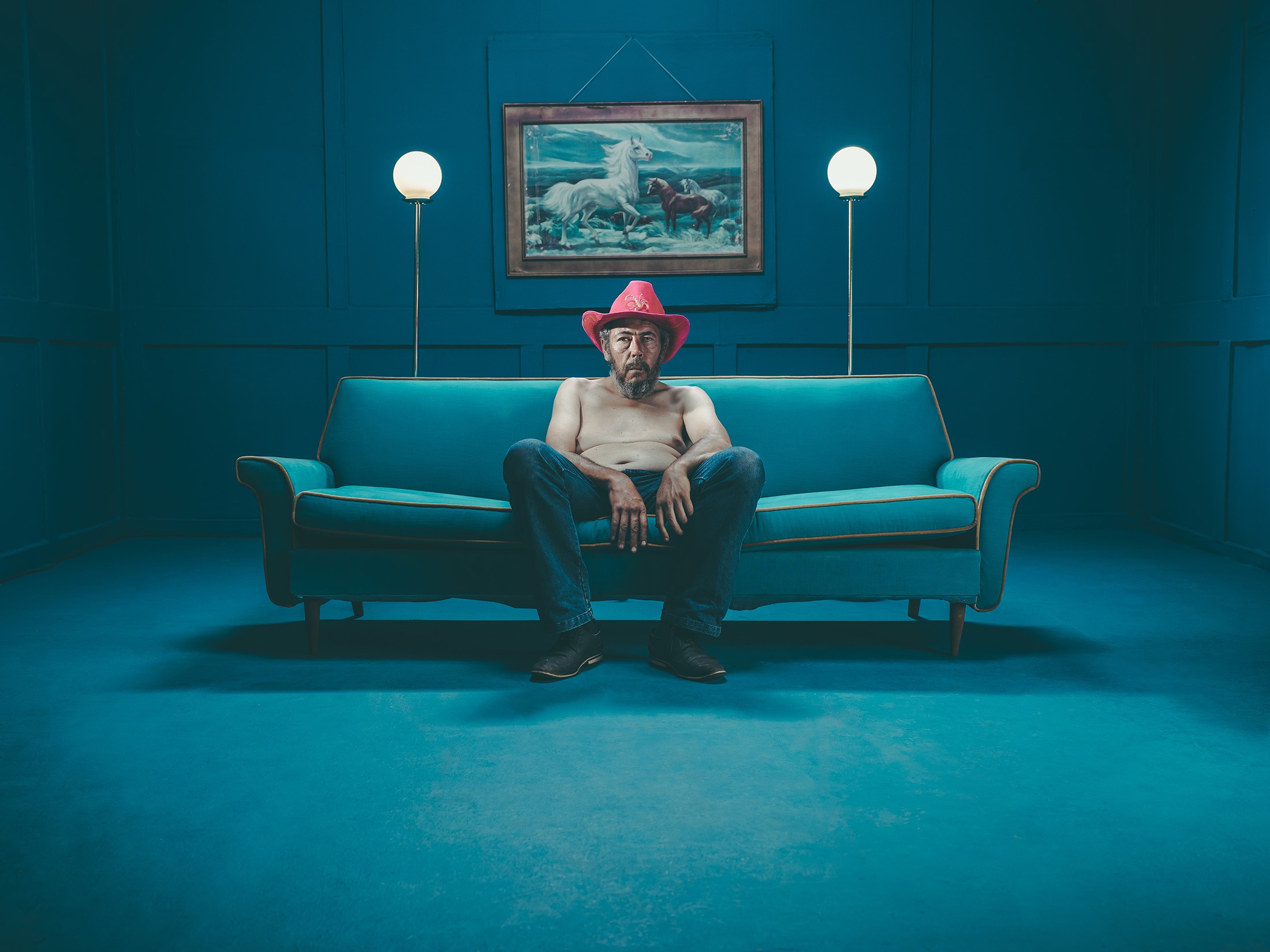We’re excited to share an interview where DPC’s own Danie Bester sits down with the brilliant André Badenhorst, South Africa’s conceptual photography whiz. Known for his stunning conceptual photography that often feels like a still frame from a movie, André’s work carries a distinct cinematic flair, with each image telling a powerful story.
Watch his full interview below.
In this blog post, we’ve summarised and paraphrased key moments from their chat, offering insight into André’s creative process and visual storytelling techniques, giving you a glimpse into his wildly creative mind as he shares his laid-back yet insightful approach to conceptual photography.
André’s Journey
From Skateboarding to Conceptual Photography
André’s path into photography didn’t start with a fancy camera and a dream—it started with a skateboard. Yep, at the age of fifteen, André was focused on capturing cool action shots of his fellow skaters. Skateboarding taught him a lot—like how to frame a shot, be attuned to visual composition, and capture the energy of a moment. But soon enough, André realised there was more to photography than just documenting skating tricks. He discovered that a single image could tell a story or make someone feel something. And that was where his passion for photography truly ignited.
Fast forward a few years, and André found himself working as a wedding photographer at a Johannesburg studio. For four years, he photographed a whopping 65 weddings a year. That’s right—65 couples, 65 cakes, and 65 moments where someone inevitably stepped on the bride’s dress. But then, plot twist—he got fired. In the interview, André laughed and called it “the most amazing thing that ever happened to me.” No joke. Being let go was the push he needed to start his own photography business, where he could break free from the conventional and add his own creative flair to wedding photos. Think props, dramatic lighting, and anything but the ordinary!
But, as much as André loved shaking up the wedding photo scene, even creative geniuses need a break. After photographing more than 1600 weddings in his entire career (yes, 1600—you read that correctly), André felt down due to photographing at the same venues and receiving the same requests from clients. Despite the wedding fatigue, he’s still grateful for that chapter of his career because it taught him the magic of lighting, which he swears is more important than composition. “The same stuff I learned in wedding photography, I apply today,” he reflected.
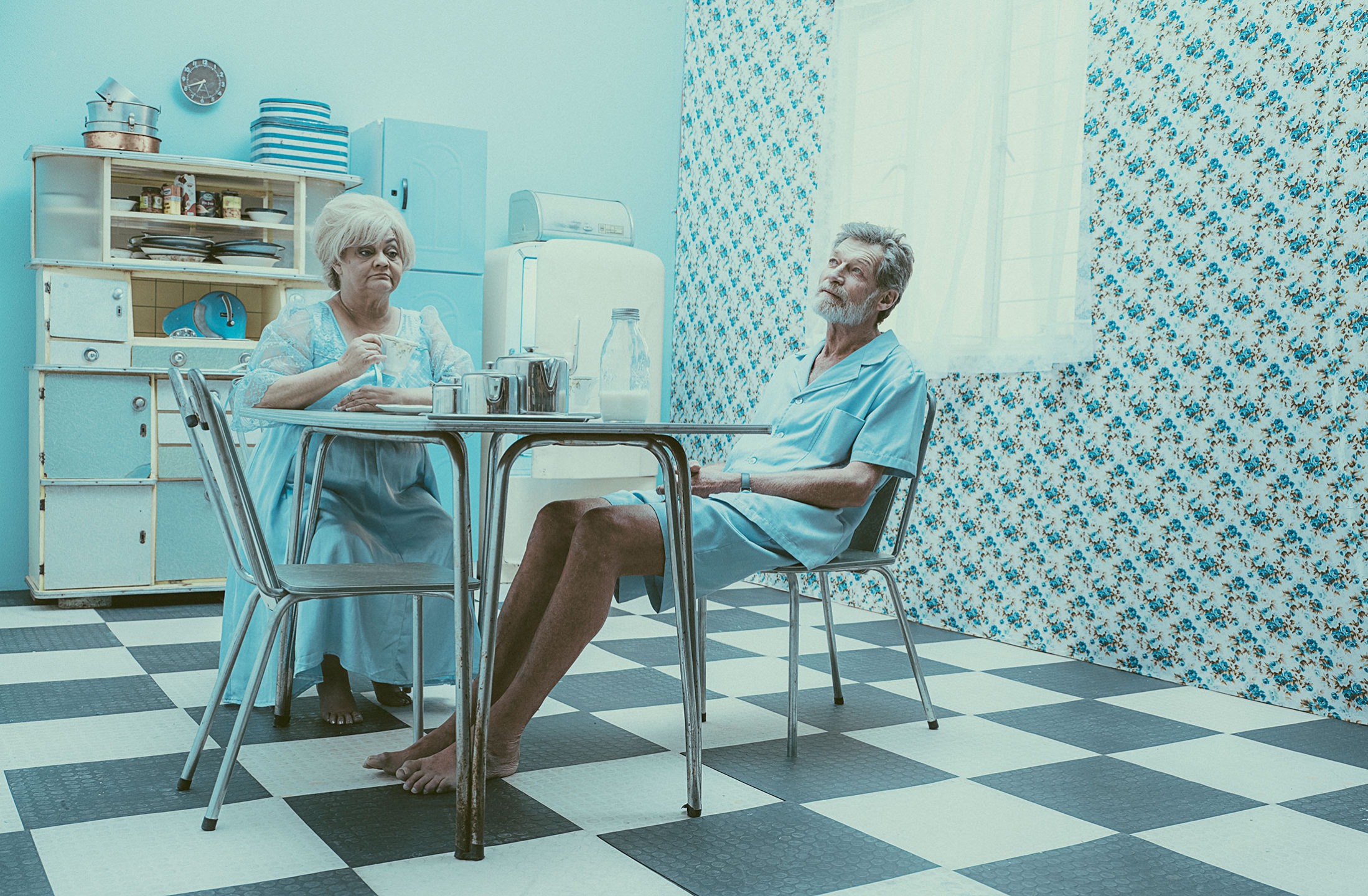
From Weddings to Passion Projects
Feeling a bit worn out from wedding festivities, André shifted his focus to “Passion Projects”—which sounds super fancy but is really just a way to say, “Let’s get creative!” André simply wanted to create moments that pushed his creative limits with every shoot.
This new direction led him into the exciting realm of conceptual photography. Danie chimed in, noting that switching genres is something most photographers experience, quoting, “For something new to begin, something old must die.” It’s like a chef experimenting with new ingredients; sometimes you have to toss out the old recipe to whip up something deliciously different!
Conceptual photography quickly became André’s signature style and led to him photographing iconic South African musicians and actors such as Jesse Clegg, Fokofpolisiekar, the Parlotones, and Jack Parow.
But here’s the thing: André’s not just in it for the clicks and braais (barbeques) with famous people. He uses creative photography techniques for storytelling and evoking emotions, sometimes surprising even himself along the way.
One of André’s standout projects involved a shoot with Jesse Clegg, which took place in the musician’s garden. Picture this: André transformed a part of the garden into a motel room set that symbolised loneliness and waiting. Why? Because it beautifully reflected Jesse’s personal grief after losing his wife to cancer. It was a stunning blend of haunting emotions and natural beauty, with nature creeping in on the set.
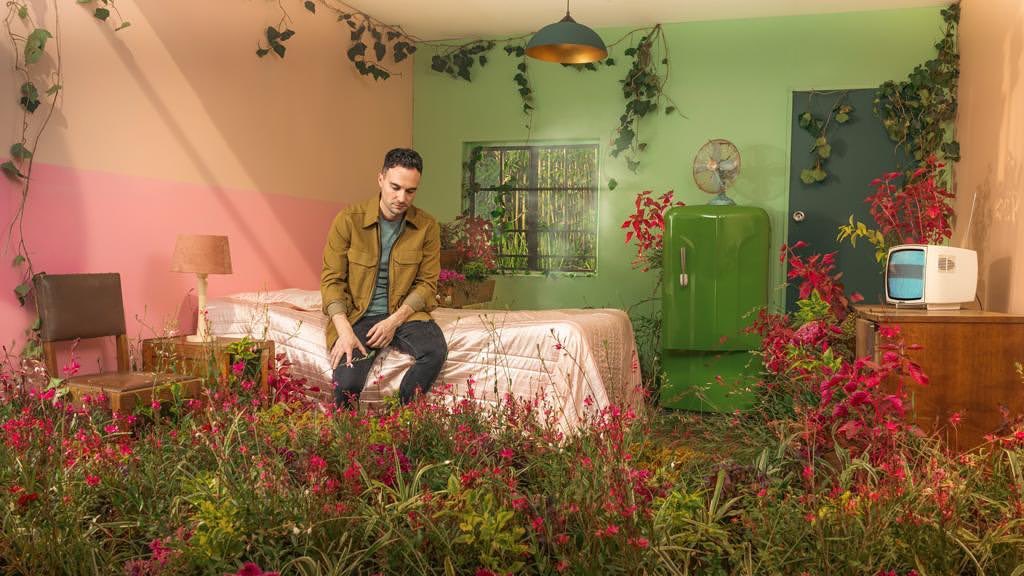
The Importance of Connection
André is all about getting to know his clients—like he did with Jesse. It’s not just a quick handshake and “let’s get this done” kind of attitude. He firmly believes that when you connect with someone on a personal level, you can build a meaningful relationship with them, increasing the likelihood that they will return as customers. “Most of my clients turn into my friends,” André shared during his chat. And honestly, who wouldn’t want to be friends with the guy behind the camera?
Knowing your subject is a game-changer.
Whether you’re photographing a brand or a person, understanding who they are helps you capture images that truly reflect them—not just surface-level, but who they really are. This ensures that the final image truly represents them.
A perfect example of this is when André photographed South African actor Gerard Rudolf for the cover of Taalgenoot magazine (see image below). Despite being a familiar face on TV, Rudolf had never actually been on a magazine cover before. During their shoot, Rudolf casually mentioned that people always recognise his face, but never seem to know his name. So, André being André, he decided to have a little fun with it. He slapped a name tag on Rudolf that read, “Hello. My name is Gerard Rudolf.” Simple, clever, and meaningful.
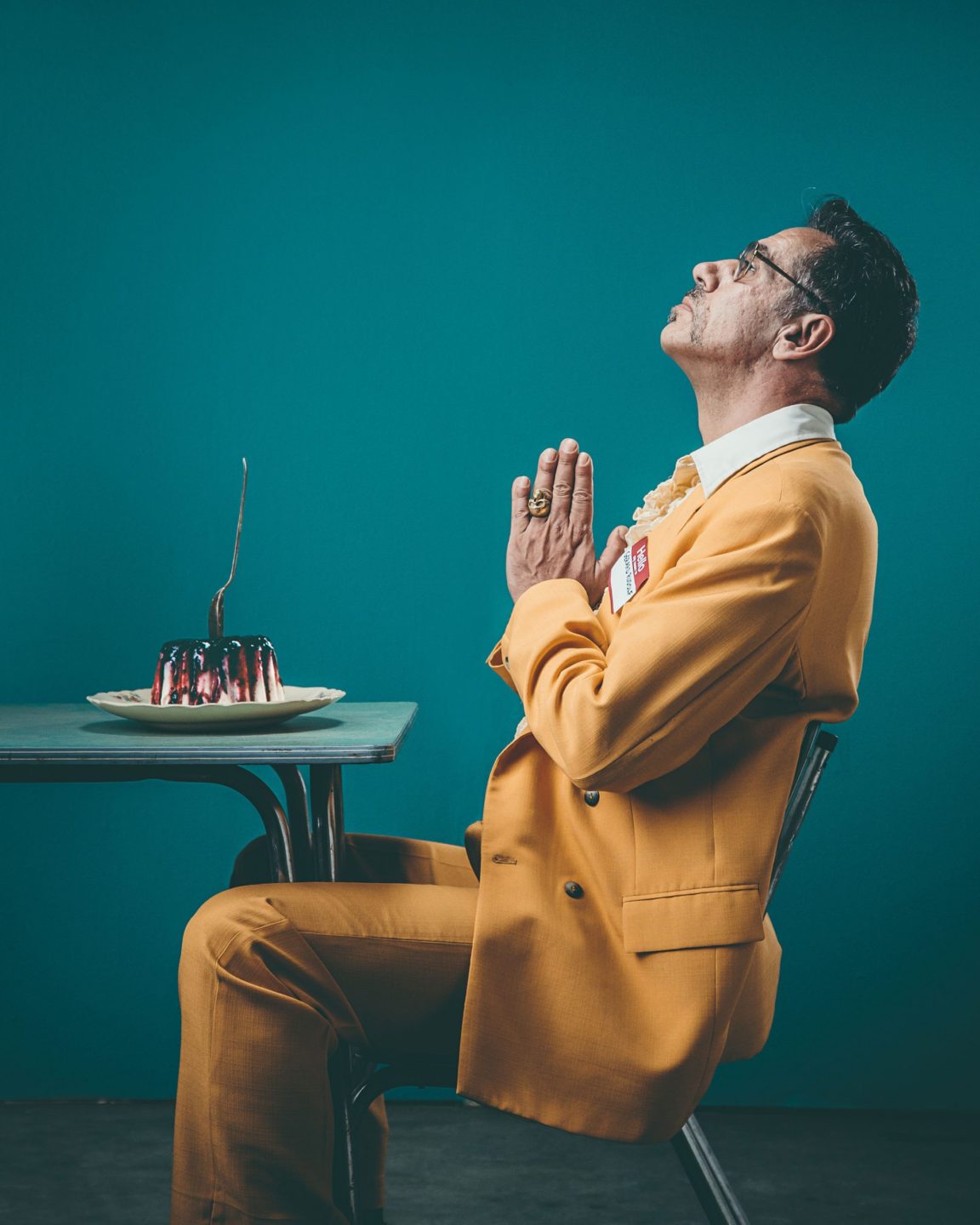
André’s Use of Lighting
André’s attention to detail and need for control were evident as he described his preference for artificial light. One of the defining aspects of his work is his precise control over lighting. Whether using flash or continuous lighting, André favours artificial light in most of his projects to maintain full control over the scene. He expressed that he likes to have control, explaining that this level of precision allows him to shape the environment exactly as he envisions it.
With continuous lighting, you can control every aspect of the image; tweak and adjust every little thing, and voilà—what you see is what you get. It’s a dream for cinematic setups where you need predictable results without any surprises.
André often works in a black shell studio, a room with no windows, no natural light—just pure creative freedom. It’s his personal light playground, where he has complete control over how every ray of light hits his subject. Whether he’s using a softbox to gently fill in shadows or blasting a strobe for some serious drama, every light source is picked with purpose, all to create the perfect mood.
André’s not just winging it either. He’s got years of experience from working as a lighting assistant on TV and movie sets. It’s here that he learned about more complex lighting setups, especially continuous lighting, which is a big deal in cinematography. He mentions that just before the DPC interview, he’d spent nine days straight doing nothing but lighting. Nine days! But it’s this dedication that allows him to push the boundaries of what’s possible with artificial lighting, and it clearly shows in his work.
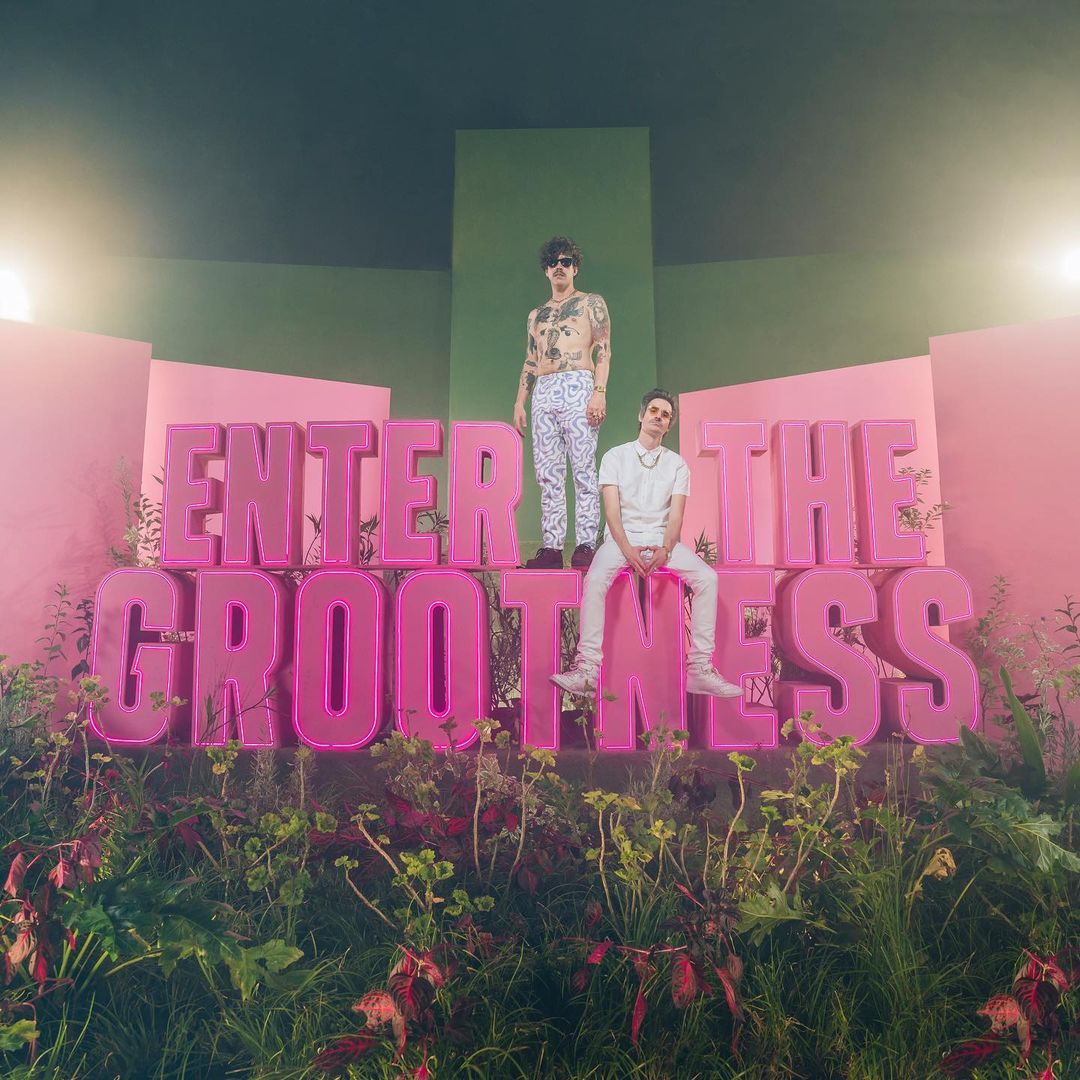
Inspiration and Influence
André stresses the importance of finding inspiration from other artists and photographers. He’s quick to point out that studying the work of other creative geniuses is one of the best ways to grow and push your own boundaries.
For him, two big influences stand out: Gregory Crewdson, with his epic, movie-like scenes, and Wes Anderson, the king of quirky visual style and storytelling. André shared that both Crewdson and Anderson have this unique way of creating entire worlds in a single frame—talk about setting standards! Their work has really shaped how André approaches his own storytelling through photography. But don’t worry, he’s not telling you to copy anyone. André’s advice? Be inspired, and learn from the greats, but always put your own unique spin on things. After all, no one else can see the world exactly the way you do!
André’s love affair with colour, for example, is a big part of his work and we have Wes Anderson to thank for a lot of that. If you’ve ever watched an Anderson film, you know the guy understands how to balance composition perfectly by using asymmetry. His colours? Next-level stuff. And André has definitely taken notes.
For André, colours aren’t just pretty to look at—they’re part of the story. He doesn’t pick colours on a whim. Nope. Every shade is carefully chosen, usually long before the camera even starts rolling. Each colour is there to set the mood, evoke emotions, and tell a story.
In several of André’s recent projects, he focused on complementary colour pairings. Think pink and teal or orange and green. These colours don’t just look good together; they bring balance to the shot and sneakily influence the viewer’s emotional reaction.
Light and colour are thus the two primary agents of mood. Light defines the structure, and colour conveys the emotion, especially in conceptual photography.
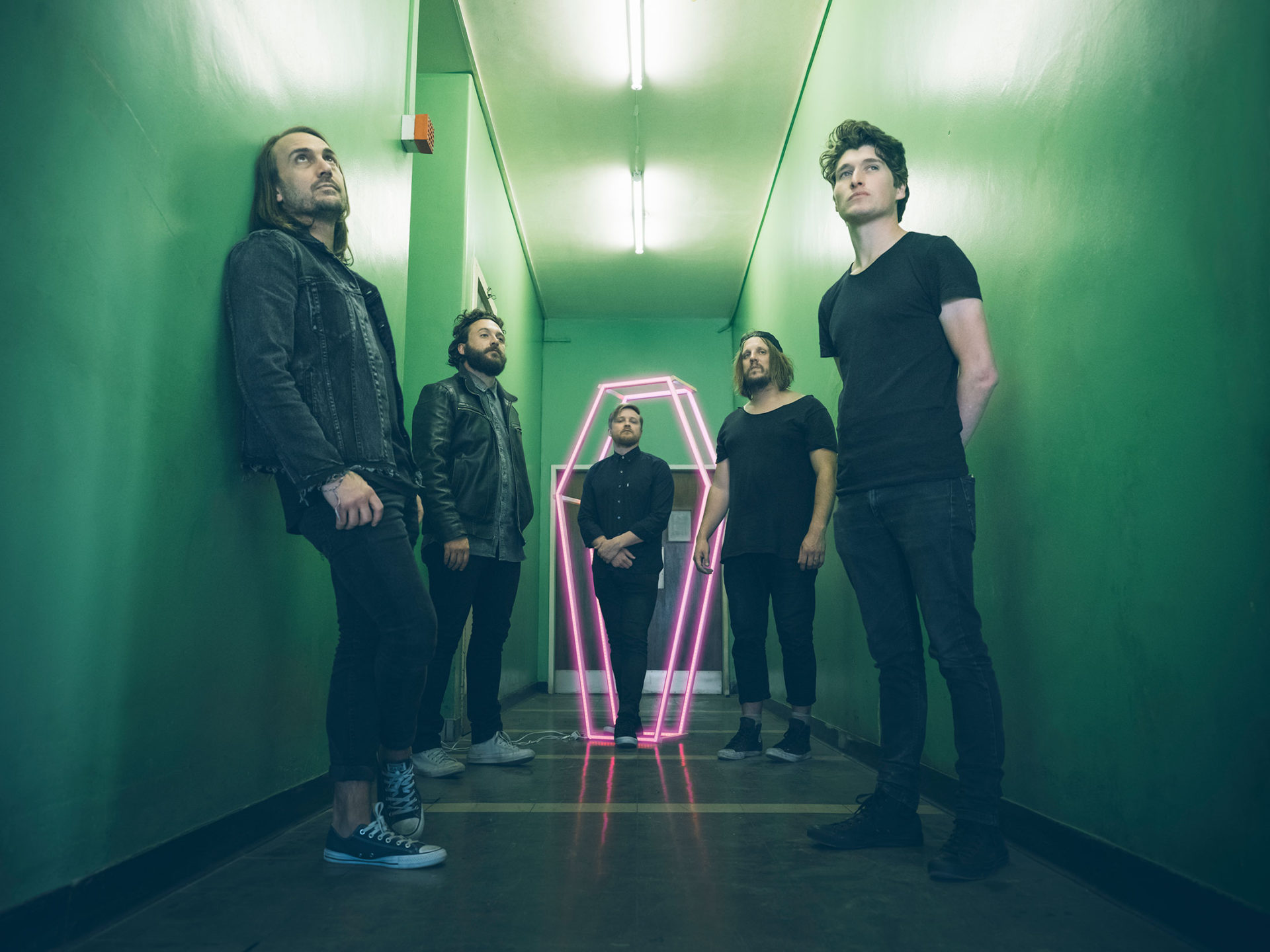
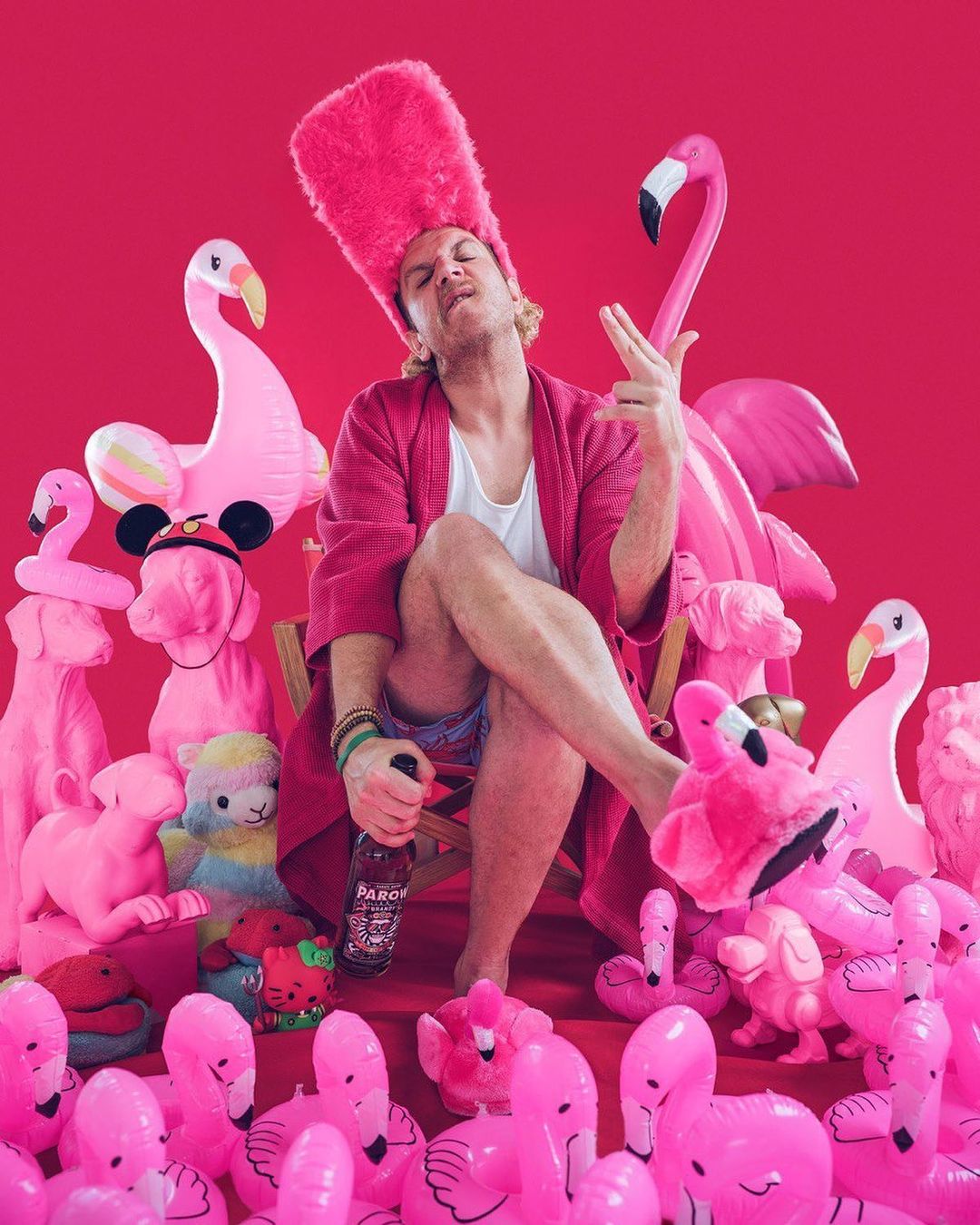
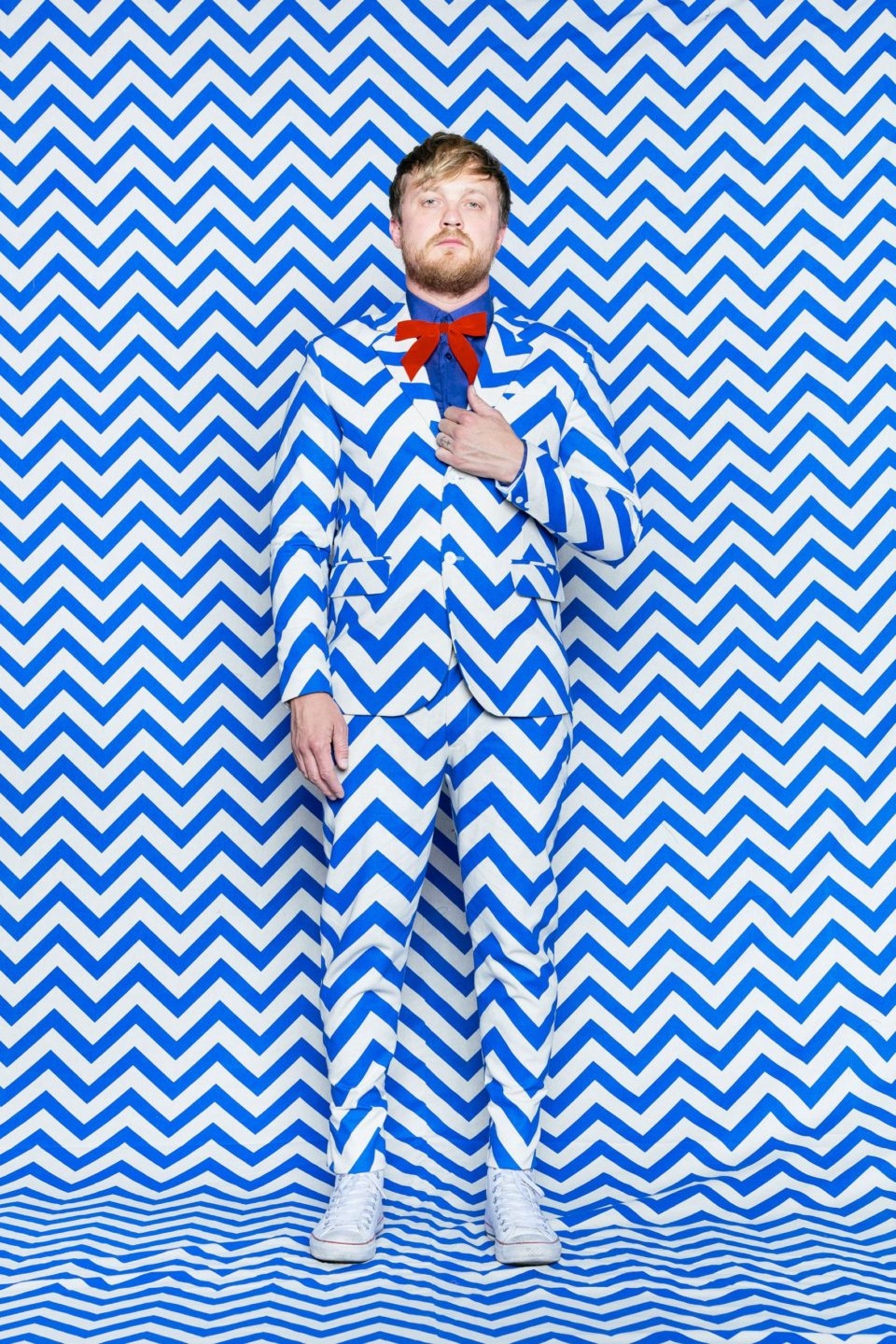
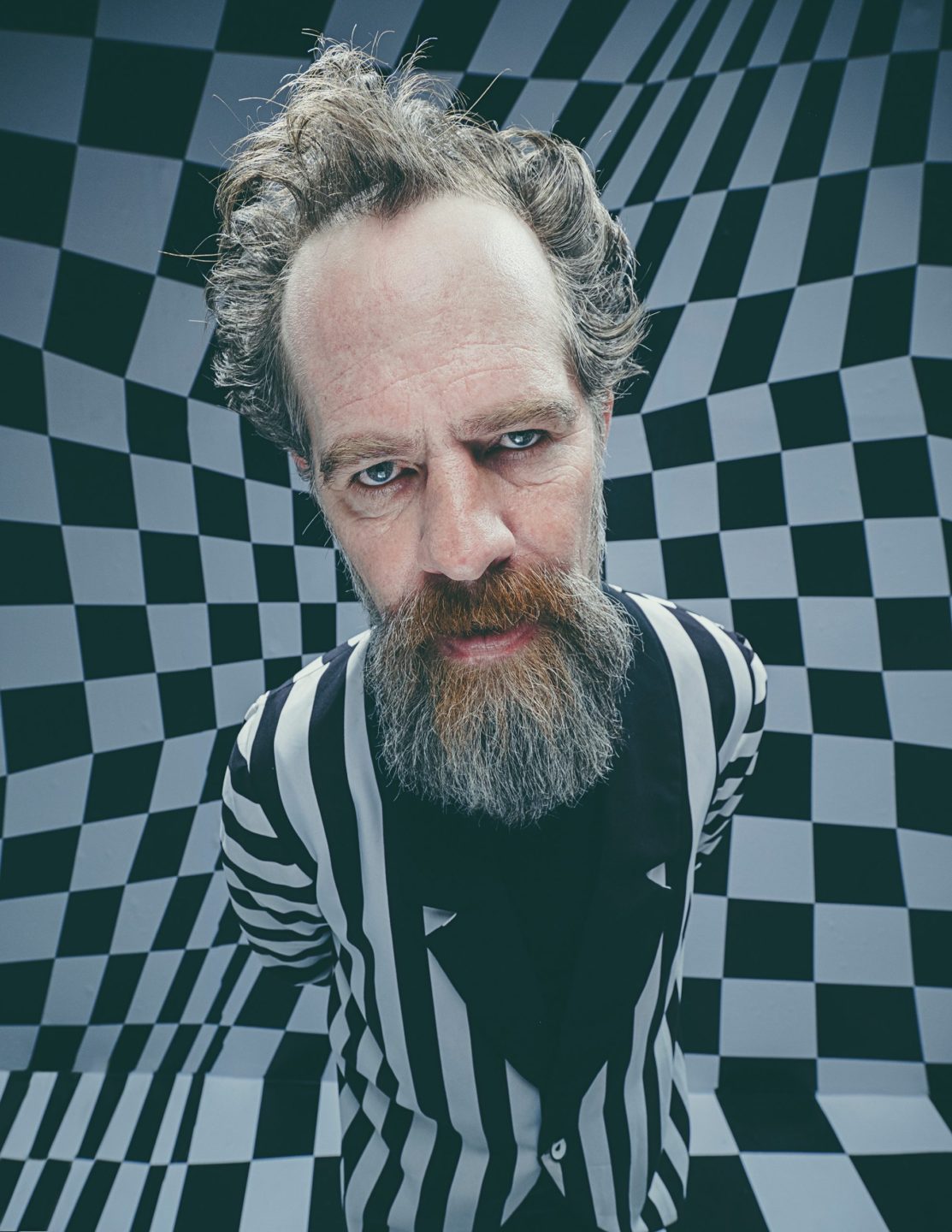
Developing Visual Intelligence
In the interview, Danie spoke about the importance of developing a solid visual vocabulary, which are crucial for creating photography that goes beyond just technical skill. And when it comes to this, Danie specifically praised André’s efforts. Because of André’s ability to blend cinematic artistry with visual storytelling? Chef’s kiss.
Danie also mentioned that André’s visual intelligence comes from having full control over every part of the frame. Whether it’s how light interacts with the subject, the colours he chooses, or the way he composes the shot, André’s got this amazing ability to bring it all together in harmony. The result? Every image feels like a complete, immersive experience.
For Danie, visual intelligence isn’t just about knowing the tools of the trade; it’s about understanding how those tools can be used to communicate ideas on a deeper, more meaningful level.
Danie pointed out that every photographer is on this journey—building up a visual library and learning to “read” and “speak” through images by borrowing techniques and moods from other artists like André has with Wes Anderson and Gregory Crewdson.
In the end, Danie made it clear that André understands the balance between technical skill and emotional storytelling, and that’s what all photographers should aim for. By expanding their visual vocabulary, photographers can create images that really connect with people—just like André’s work does.
Ready to enhance your photography? Join our Creative Photography Series to learn the art of visual storytelling and create images that truly connect. Click here to get started!
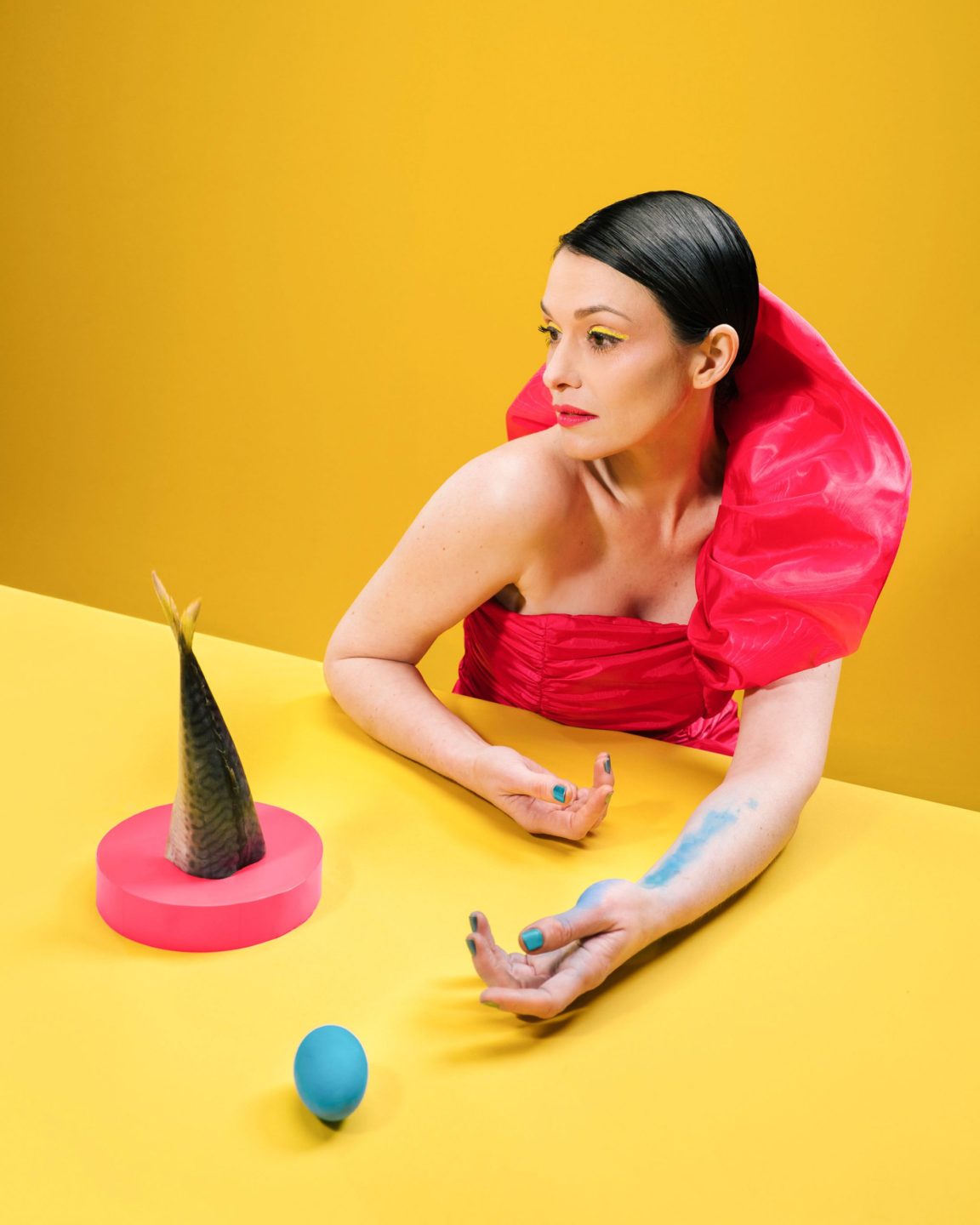
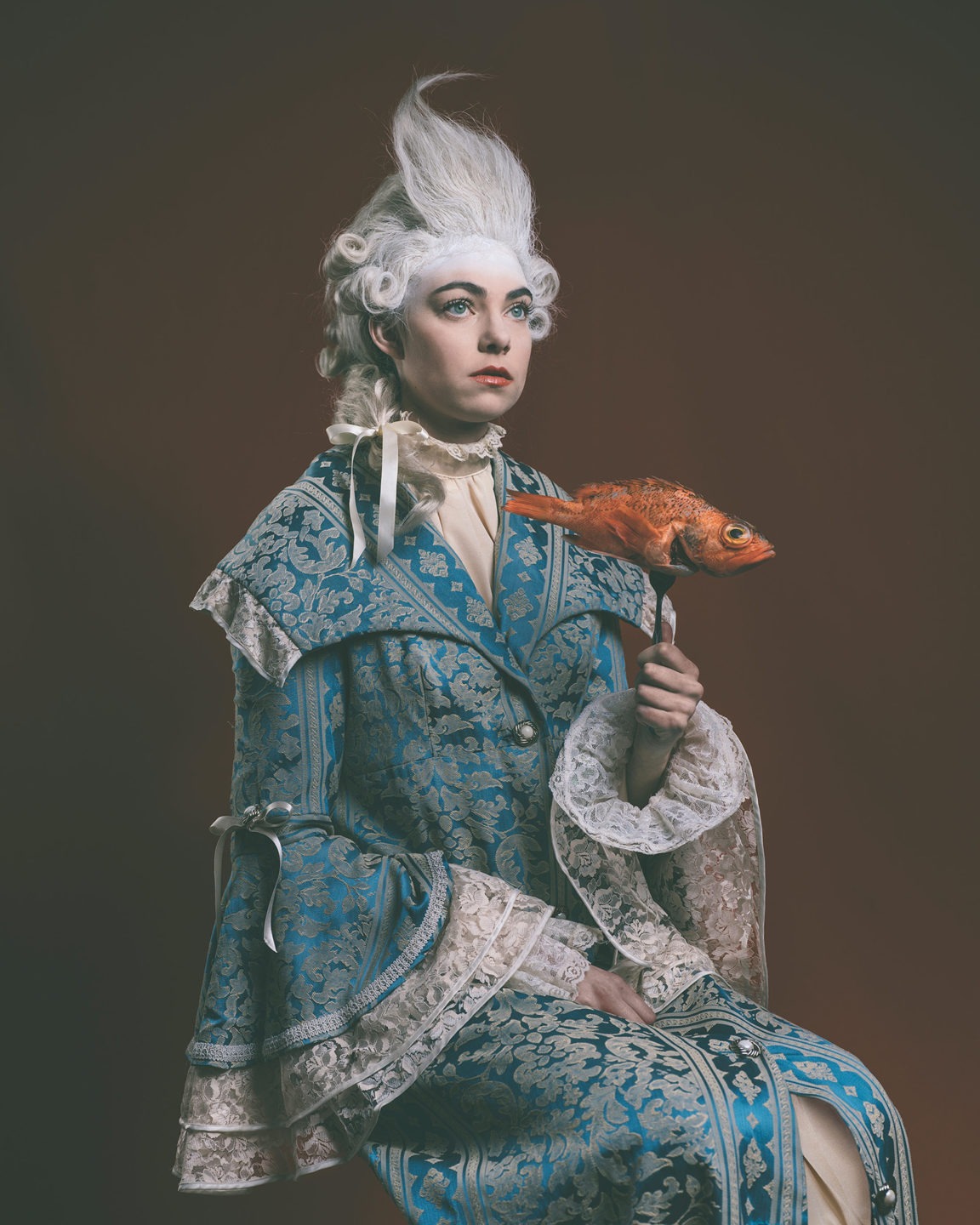
André’s Gear
André gave us a peek behind the curtain of his camera gear, revealing that he shoots with the Fujifilm GFX 50S, a 50-megapixel medium-format camera. Why? For his conceptual photography, André needs all the pixels—he’s not about to let any detail slip away.
He also broke down the sensor size debate. In short, medium format sensors are like the Hulk of cameras—almost twice the size of full-frame and massive compared to APS-C. Beyond the extra resolution, which gives André the freedom to work with super-detailed, high-resolution images, it’s the depth of field and cinematic feel of medium format that really appeals to him.
André’s quick to admit that medium formats are a bit slow in the autofocus department, so don’t expect to shoot sports action with one of these. But for conceptual work? It’s perfect. You need dynamic range and colour depth, not the ability to catch someone mid-sprint.
As André says, it’s not about having the best gear; it’s about having the right gear.
The tools he chooses are needed to make sure every element in his images, no matter how small, is sharp and stunning. As he said, different cameras for different projects—that’s the secret!
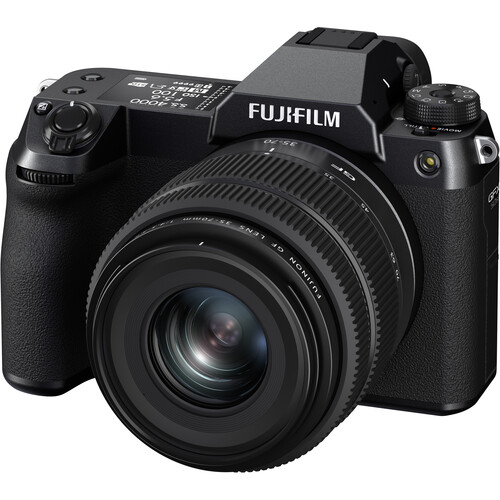
It’s cliché to say, but teamwork DOES make the dream work
It’s a phrase we hear all the time, but for André, it’s the honest truth. He was quick to admit, “Without my team, I am absolutely nothing.” André’s down-to-earth nature was clear here, as he humbly credited his team’s role in his success.
André’s team isn’t just a bunch of pros; they’re his creative partners in crime, consisting of makeup artists, lighting magicians, and set designers who are all key players in turning his wild ideas into reality. Despite being the creative force behind his projects, André easily shines the spotlight on his team, making it clear that true artistic triumph is a team sport.
His team is also known for going above and beyond. One time, right before a shoot, they had to rebuild an entire set in record time after the set walls literally came crashing down. It’s that kind of dedication (and maybe a little adrenaline) that makes André’s shoots a success.
The key takeaway here: Find your crew.
If you’re tackling big, ambitious projects, having a solid team means you can focus on the fun, creative stuff while they handle the technical challenges.
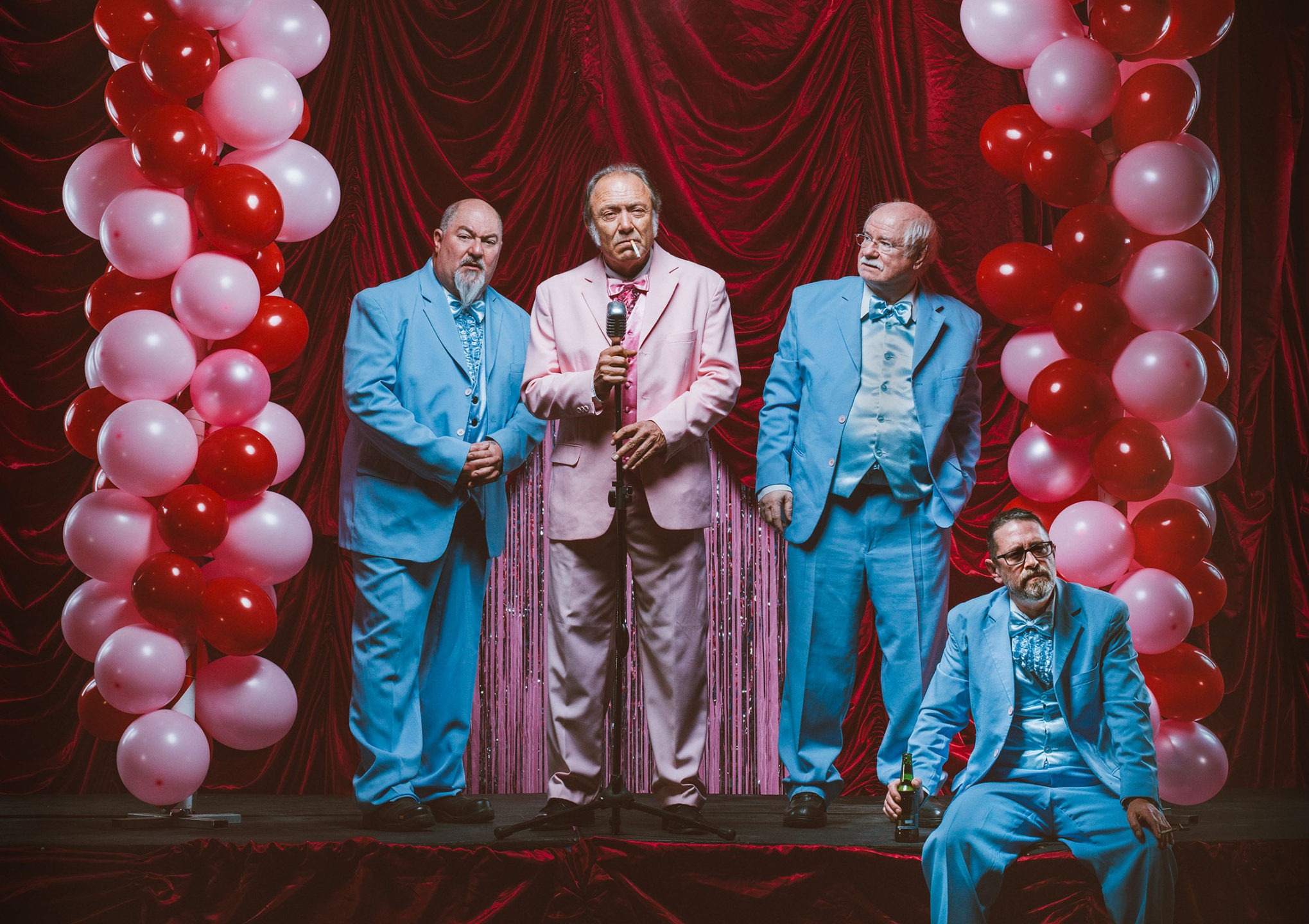
Artificial Intelligence: Friend or Foe?
Of course, no photography chat would be complete without talking about the whole AI thing, right?
André says that AI is both a handy sidekick and a bit of a challenge.
South African photographers often use AI to present concepts to clients, helping them see what a shoot might look like. But when it comes to the actual work? That’s all human creativity, baby.
To some extent, he actually likes it when people ask him, “Is that AI?” after looking at his portfolio. With a laugh, he said it makes him feel like he’s done his job well! But André likes to leave tiny imperfections in his photos, little clues that scream, “Hey, this is the real deal, not AI!” It’s his way of keeping things real, reminding everyone that behind the image is a handsome human photographer, not a robot.
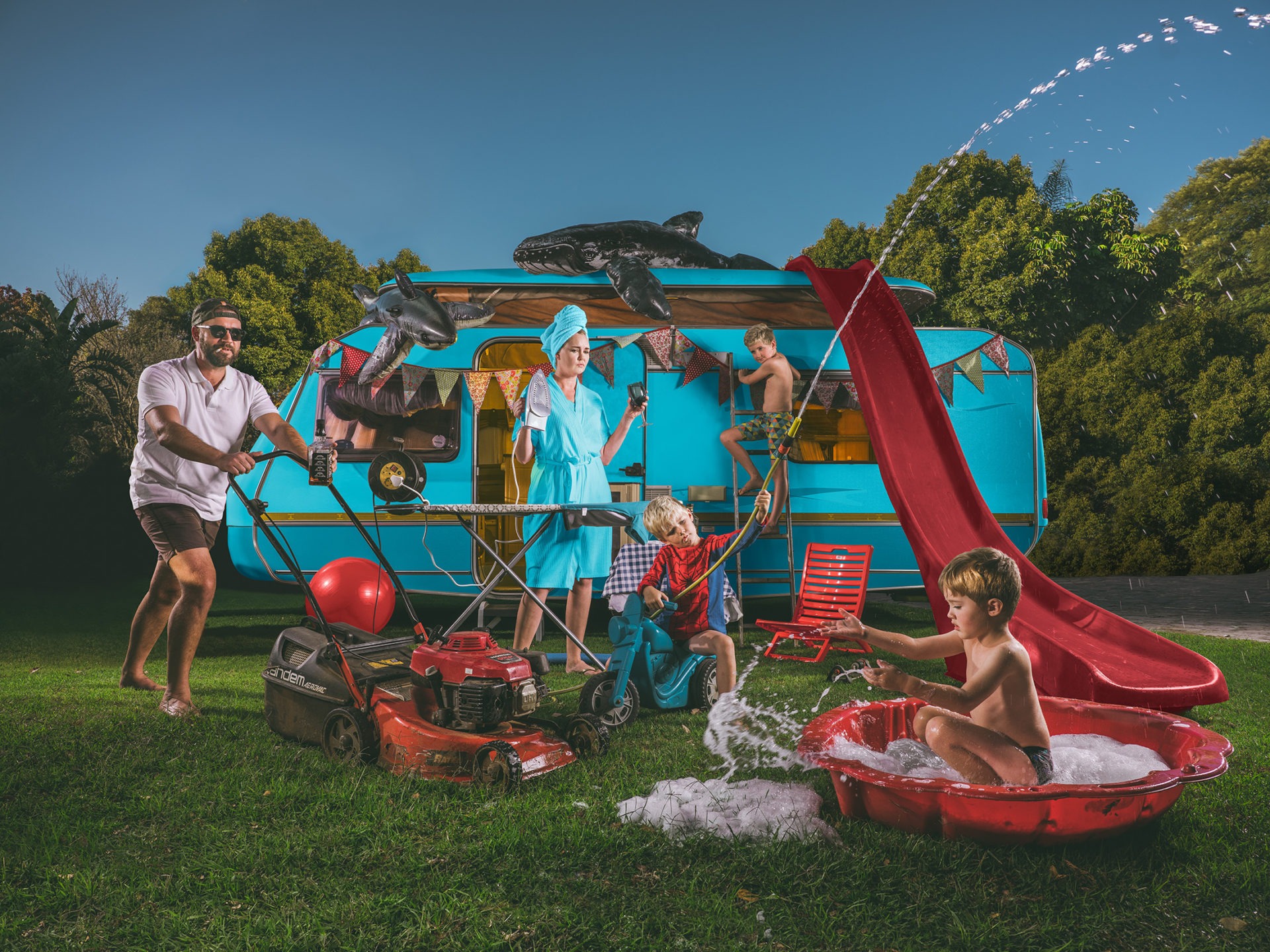
The Importance of Sharing Knowledge
Let’s chat about something that’s super close to André’s heart: sharing knowledge in the photography community. You know how some photographers act like they’ve got the secret sauce to snapping the perfect shot and refuse to spill the beans? André views this as counterproductive, insisting that photography depends on the open exchange of ideas. He thinks helping fellow photographers grow isn’t just a kind gesture; it’s basically a must-have for the art form to evolve. So, let’s stop hoarding those tips like they’re the last slice of pizza at a party!
Danie also chimed in, reminding us that every photographer starts at the bottom of the food chain, doing all the not-so-glamorous grunt work at first. It’s like being the intern who fetches coffee before they become a famous photographer.
But while climbing that ladder of success, it’s crucial to keep a humble attitude and lend a helping hand to fellow photographers.
Conceptual Photography Workshops!
In the interview, André and Danie discussed the importance of learning from photography pros. Whether you want to channel Wes Anderson’s quirky colour palette or imitate Gregory Crewdson’s epic cinematic lighting, gaining insights from these experts is key. Now, DPC students can get hands-on training from André at our upcoming Conceptual Photography Workshop. (We’re still finalising dates for other conceptual workshops).
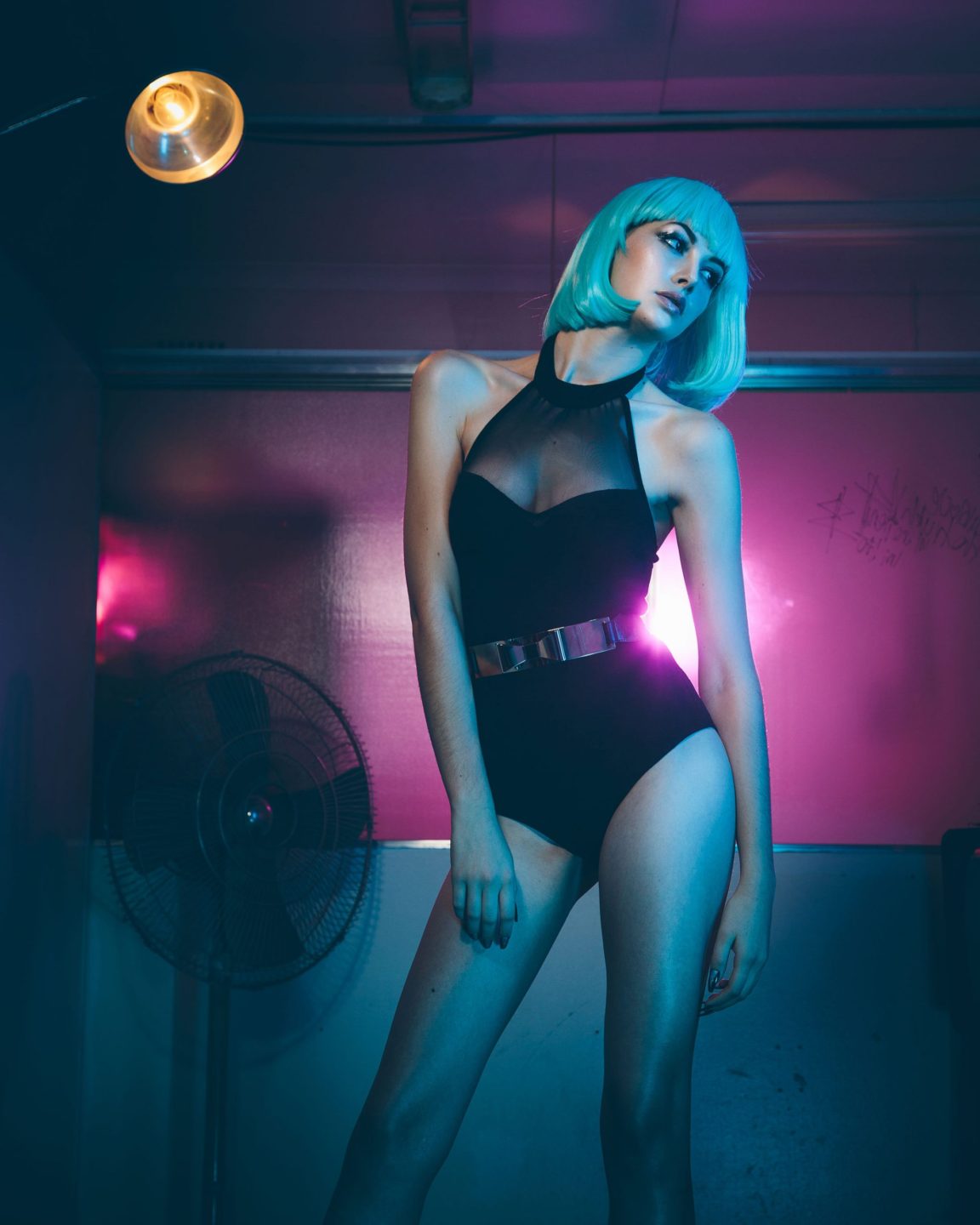
Conclusion
In the end, talking to André was like getting a masterclass in photography, creativity, and the art of human connection—all wrapped up with a good dose of humour. Seriously, it was like a TED Talk, but fun! Whether you’re a newbie with a camera or just someone who loves an interesting photo, there’s a lot you can take away from André’s journey and wisdom!
Remember you can watch the full interview here. You can also look at André’s website or Instagram for inspiration. We also added a few more photos for you to look at beneath.
